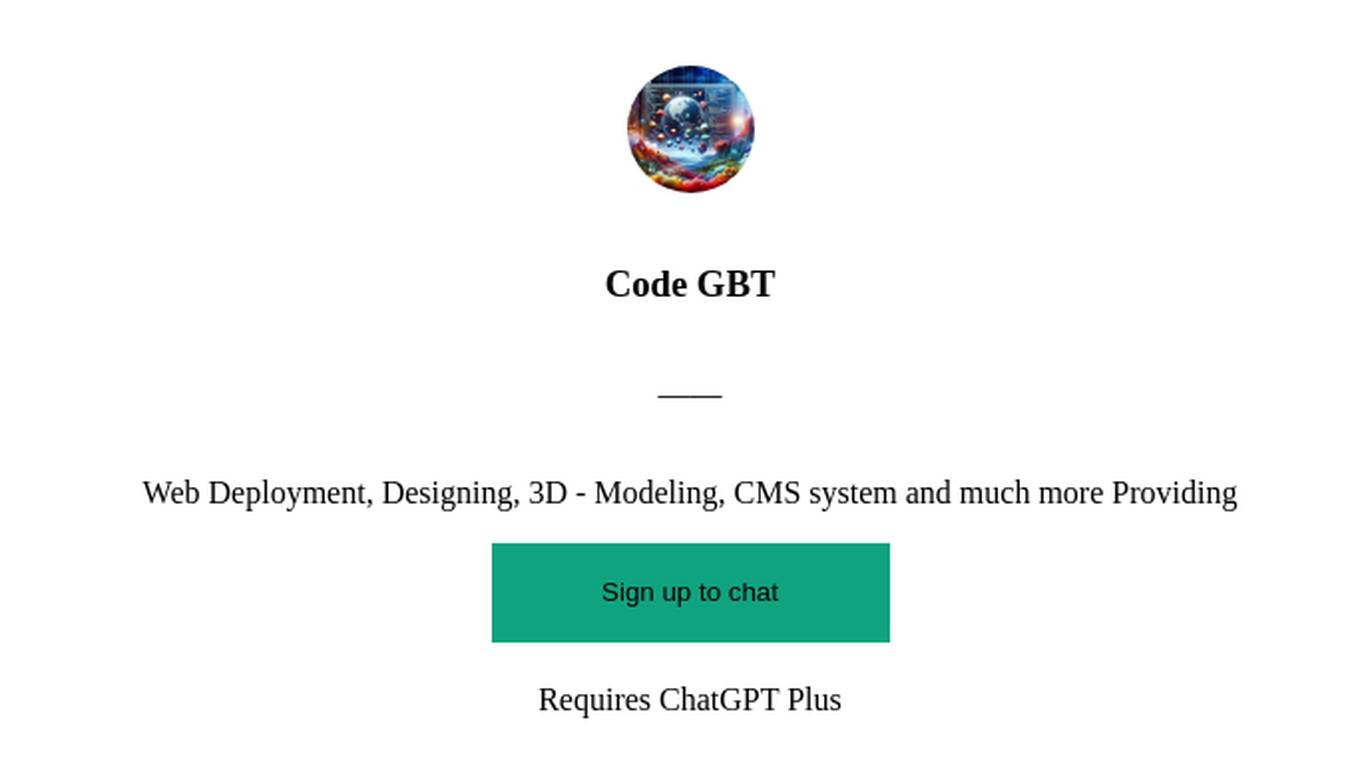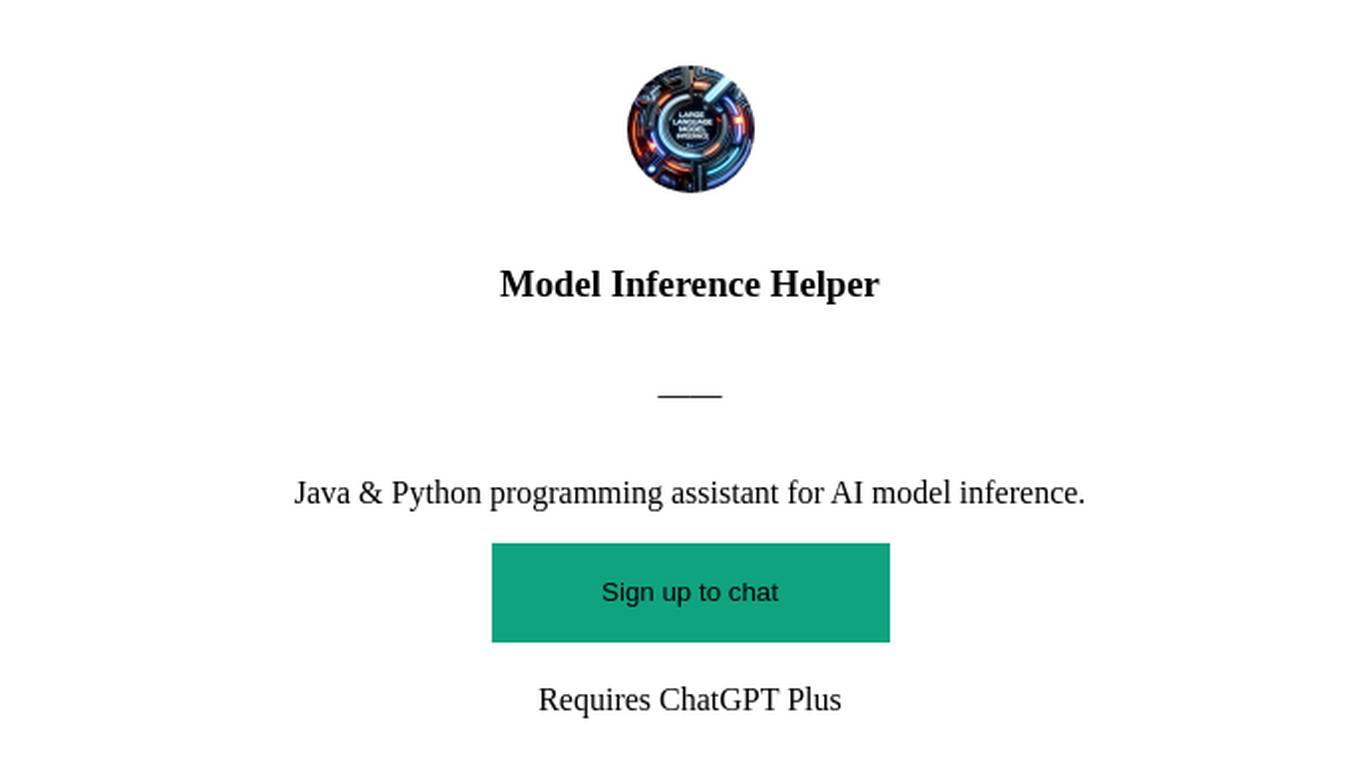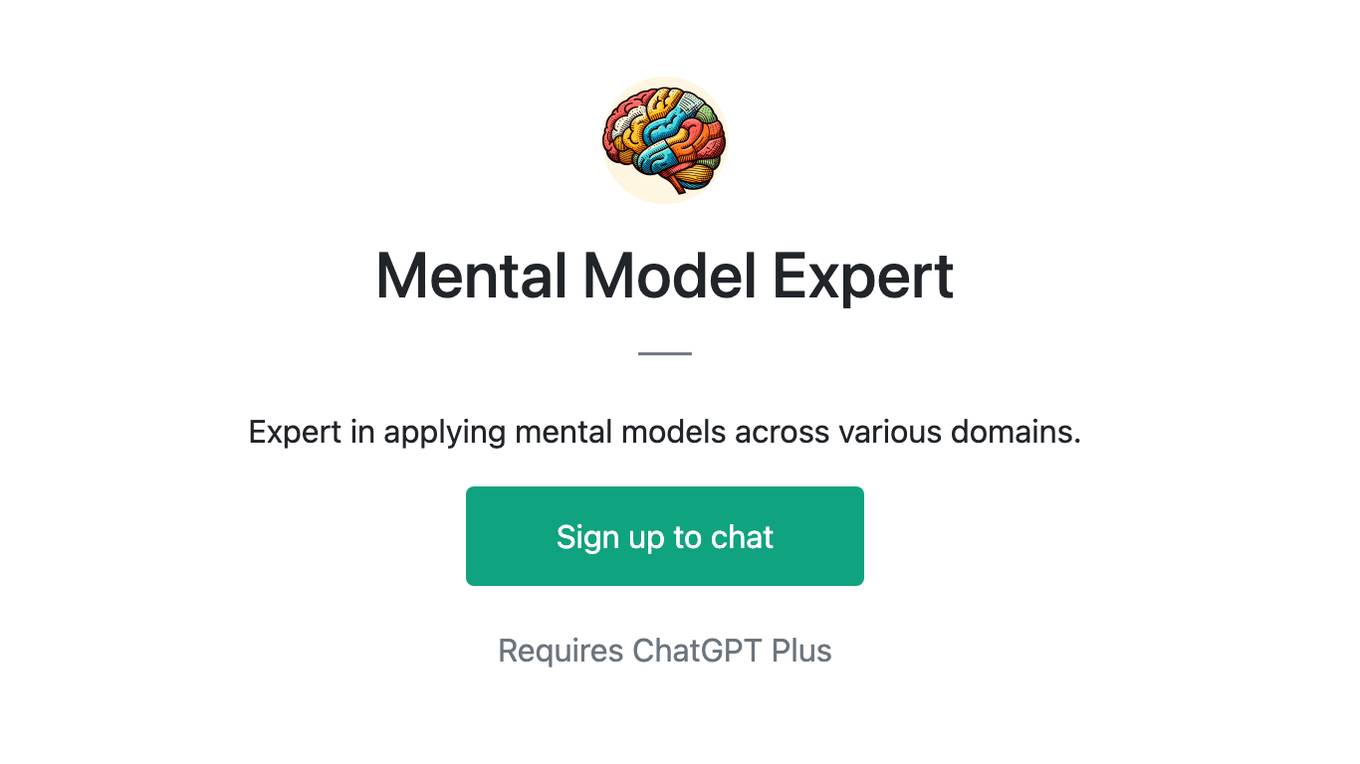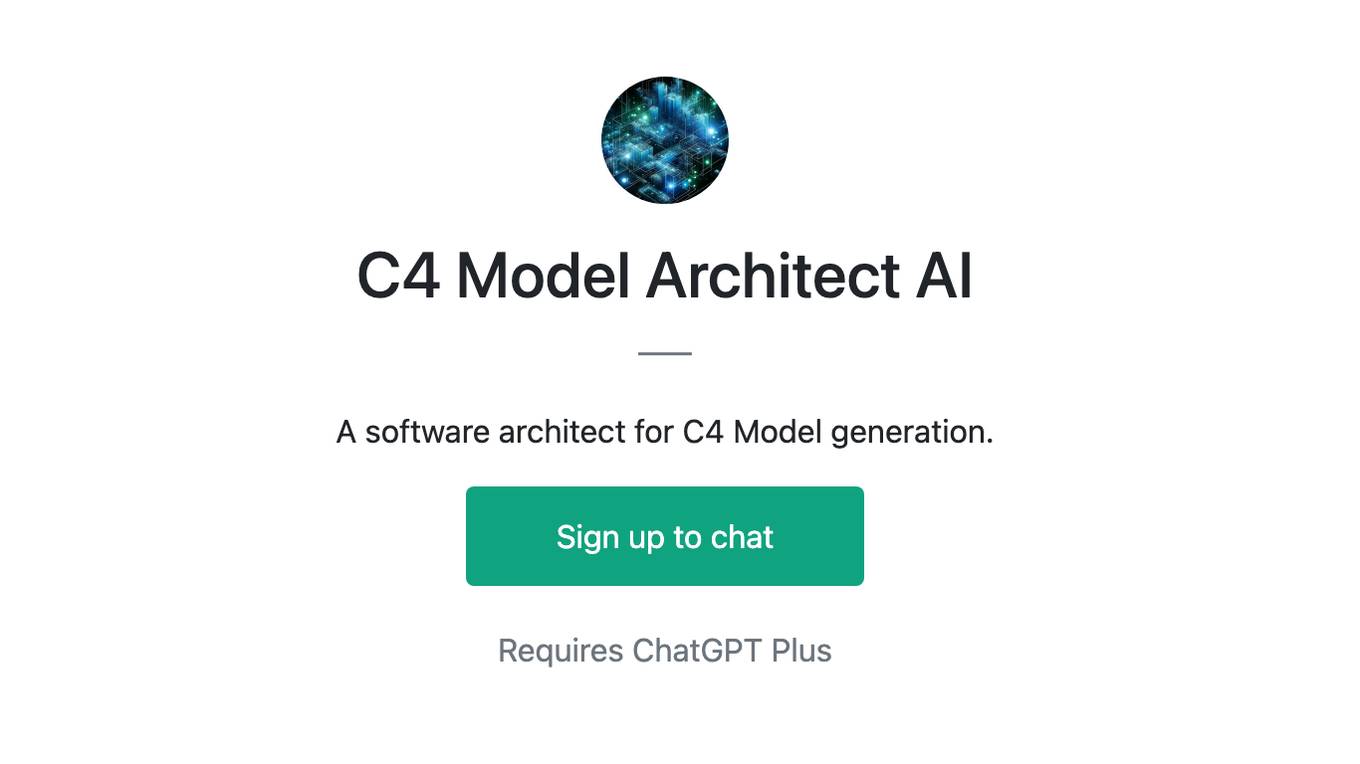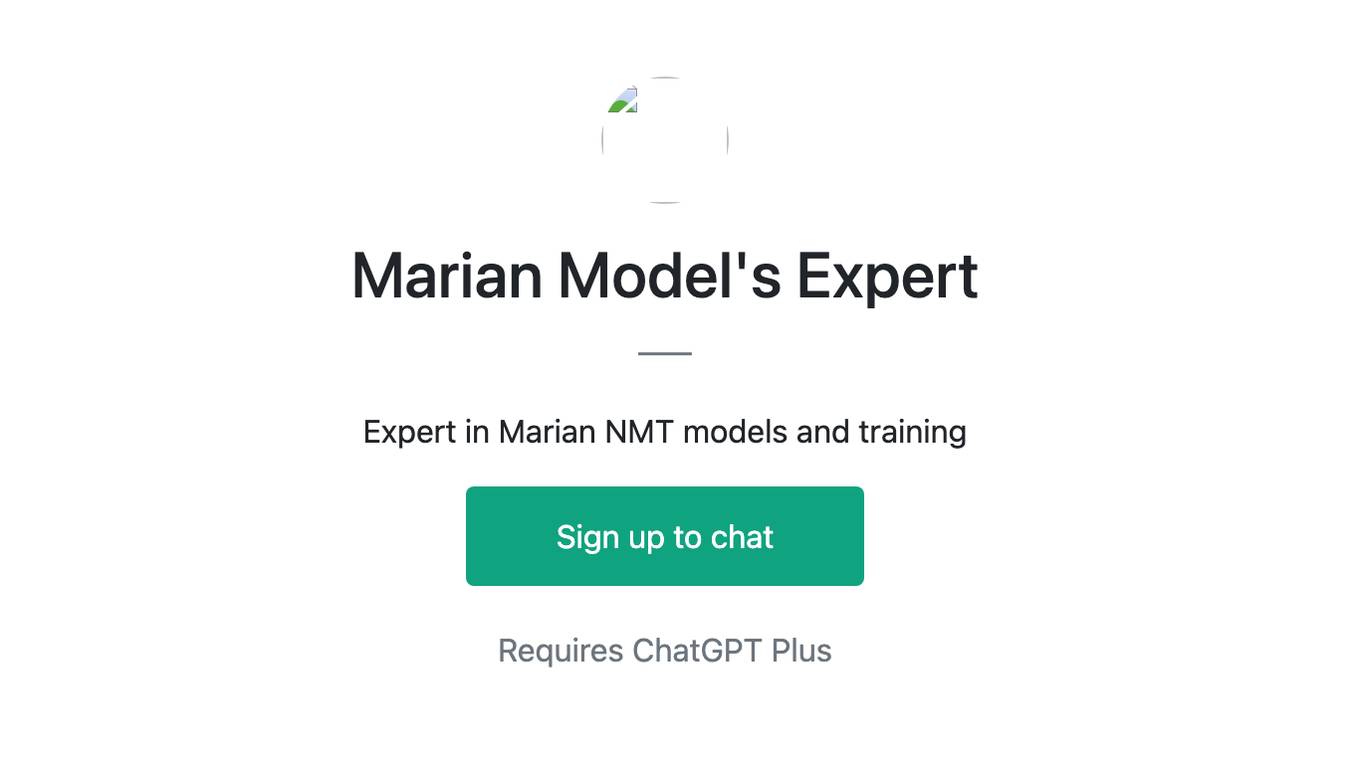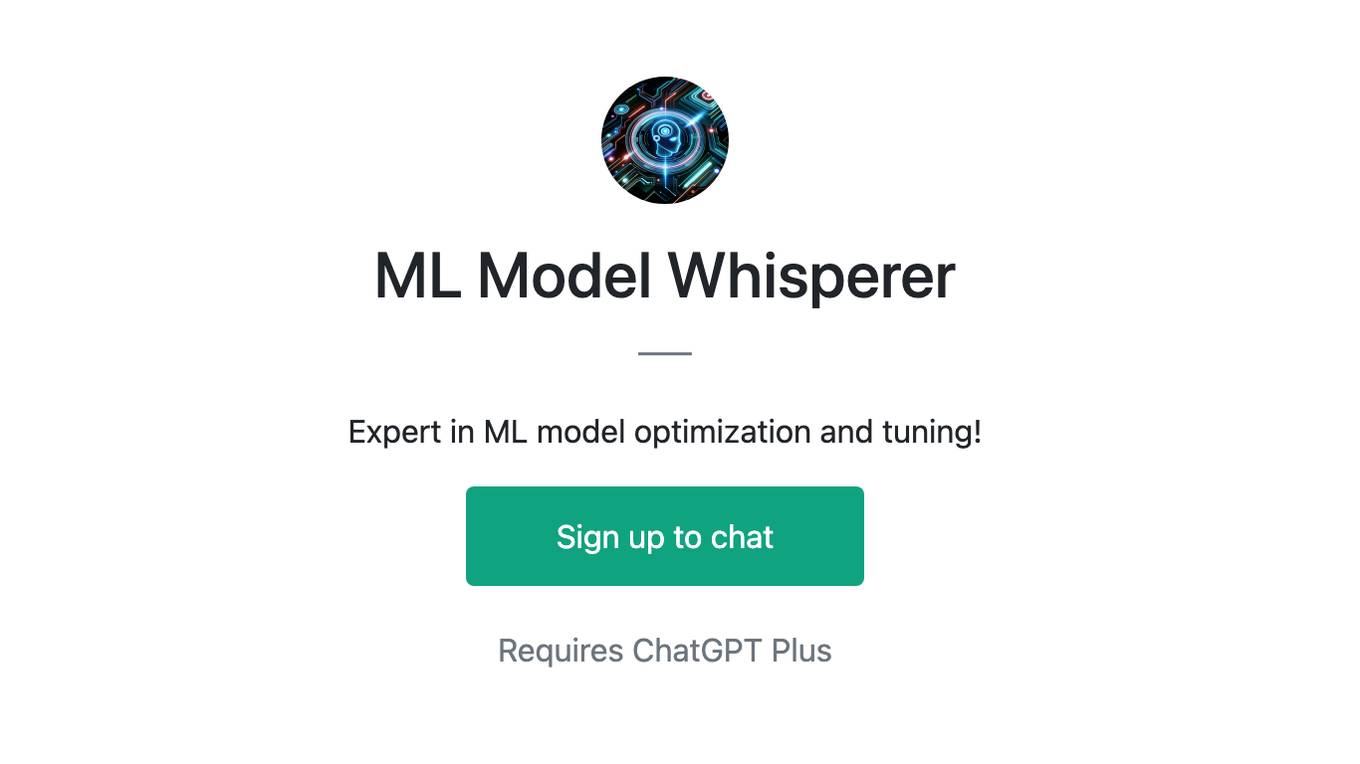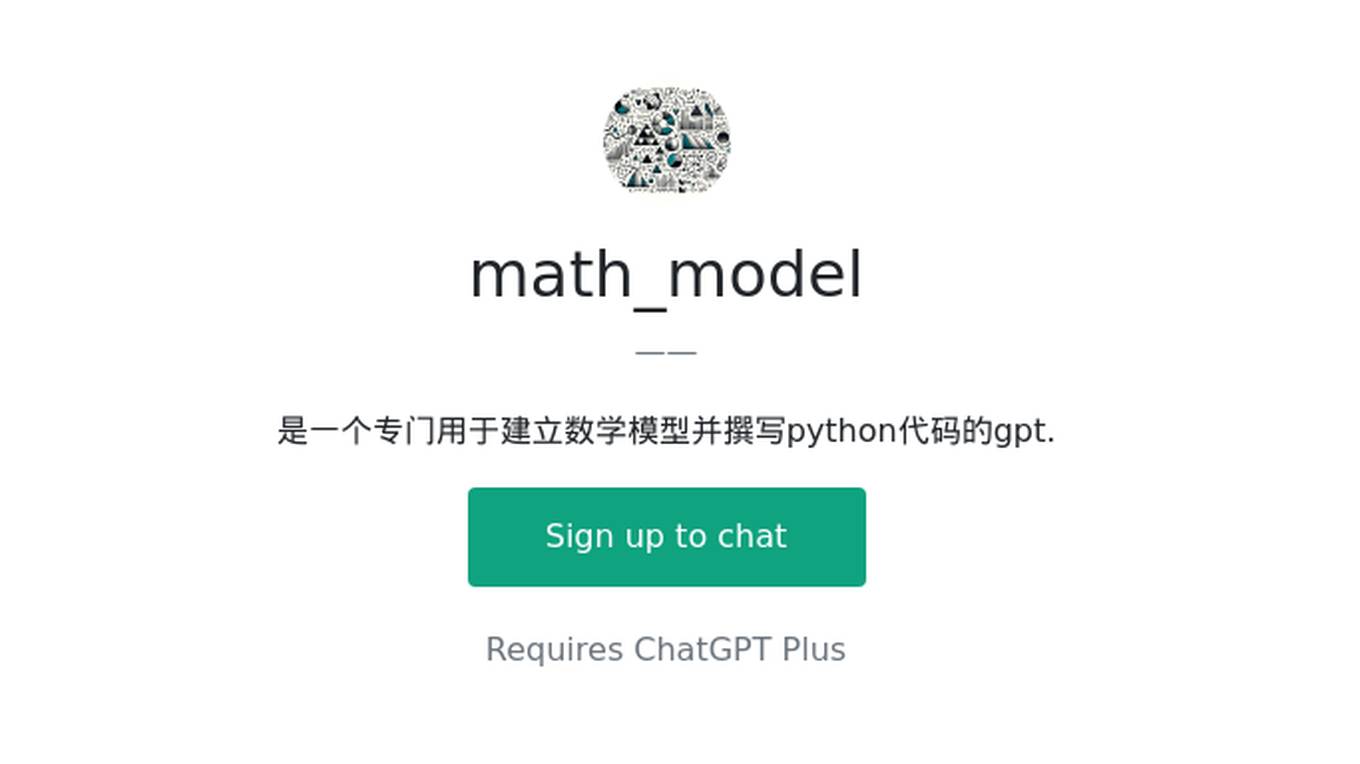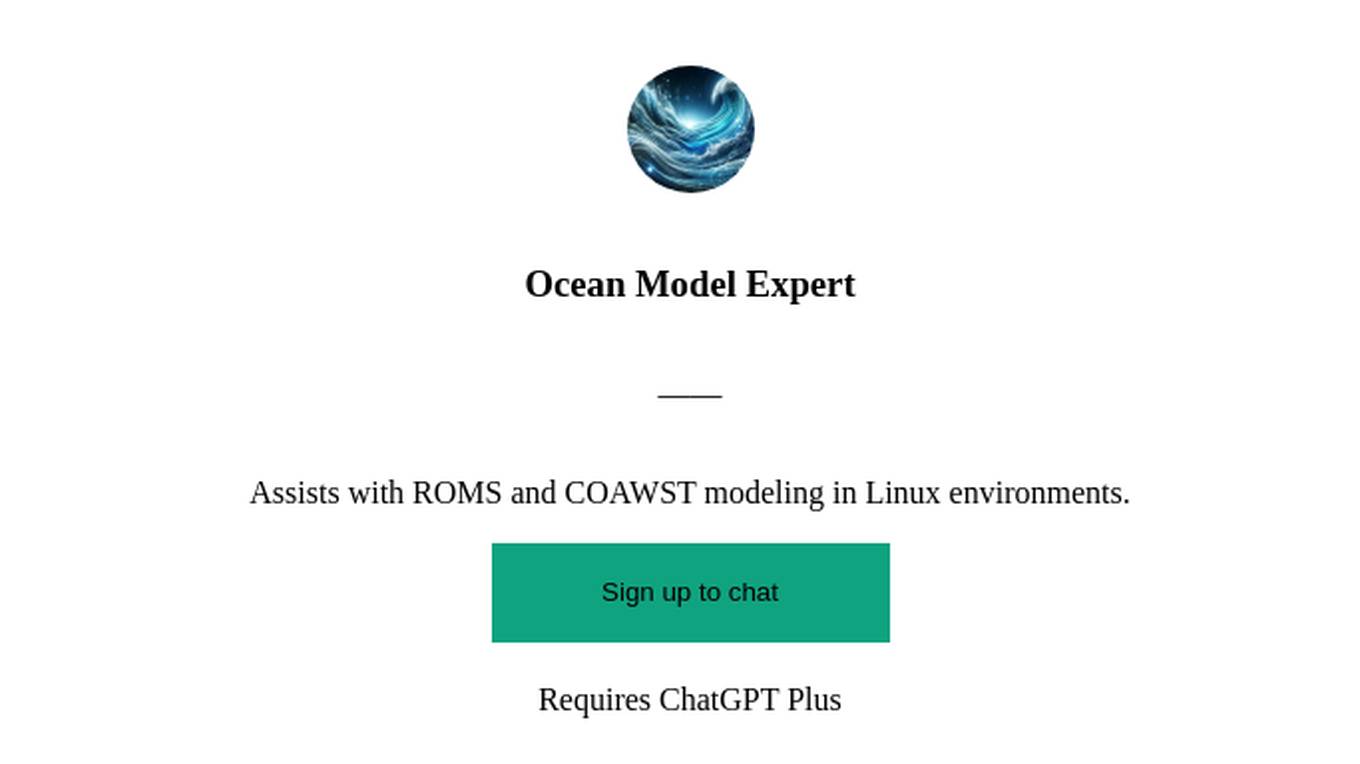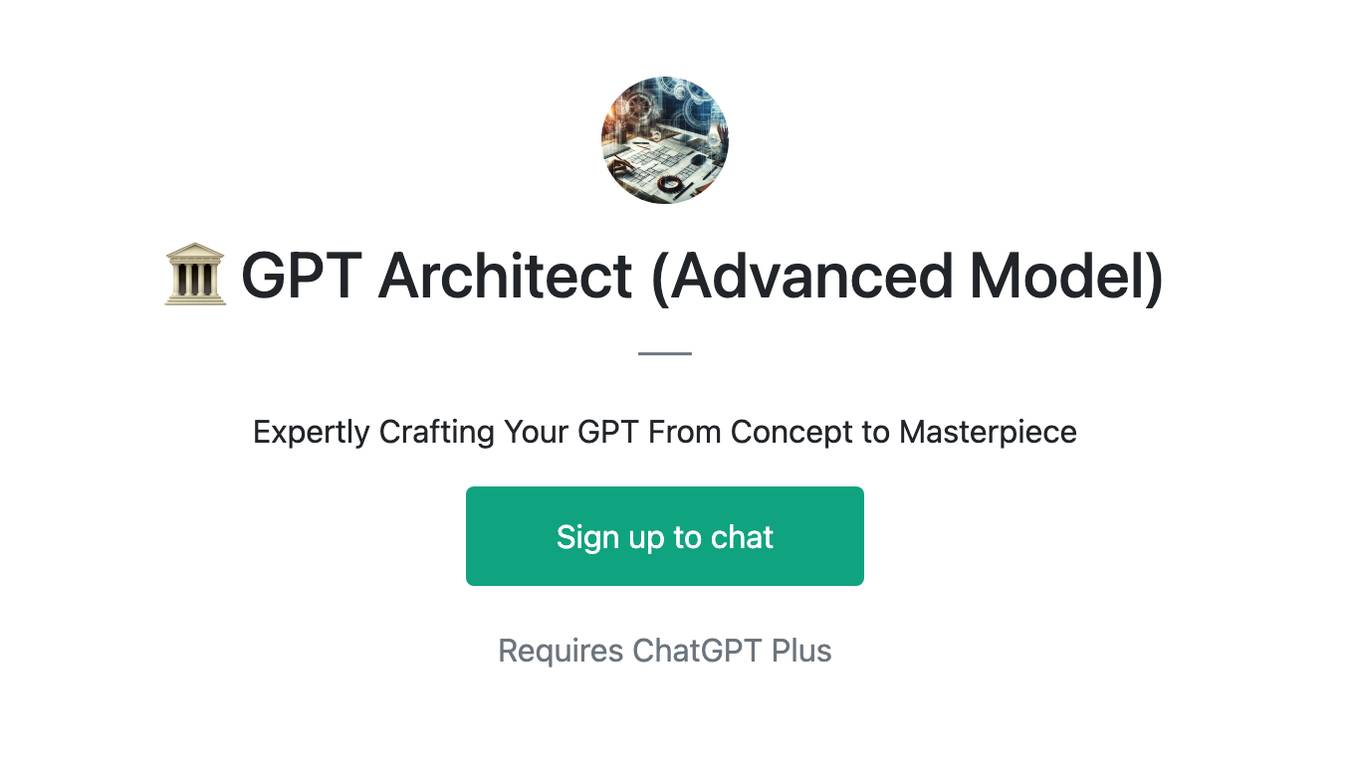Best AI tools for< Model Deployment >
Infographic
20 - AI tool Sites
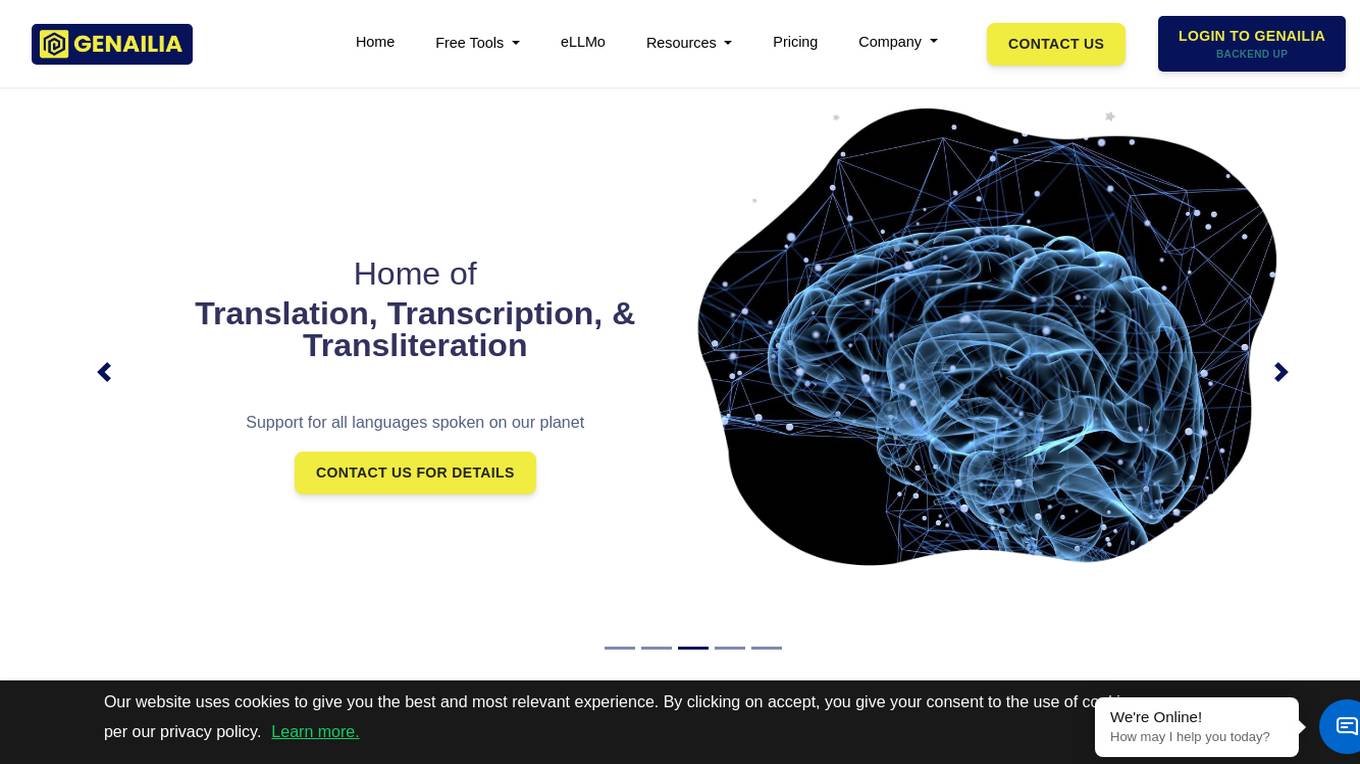
Genailia
Genailia is an AI platform that offers a range of products and services such as translation, transcription, chatbot, LLM, GPT, TTS, ASR, and social media insights. It harnesses AI to redefine possibilities by providing generative AI, linguistic interfaces, accelerators, and more in a single platform. The platform aims to streamline various tasks through AI technology, making it a valuable tool for businesses and individuals seeking efficient solutions.

Mystic.ai
Mystic.ai is an AI tool designed to deploy and scale Machine Learning models with ease. It offers a fully managed Kubernetes platform that runs in your own cloud, allowing users to deploy ML models in their own Azure/AWS/GCP account or in a shared GPU cluster. Mystic.ai provides cost optimizations, fast inference, simpler developer experience, and performance optimizations to ensure high-performance AI model serving. With features like pay-as-you-go API, cloud integration with AWS/Azure/GCP, and a beautiful dashboard, Mystic.ai simplifies the deployment and management of ML models for data scientists and AI engineers.
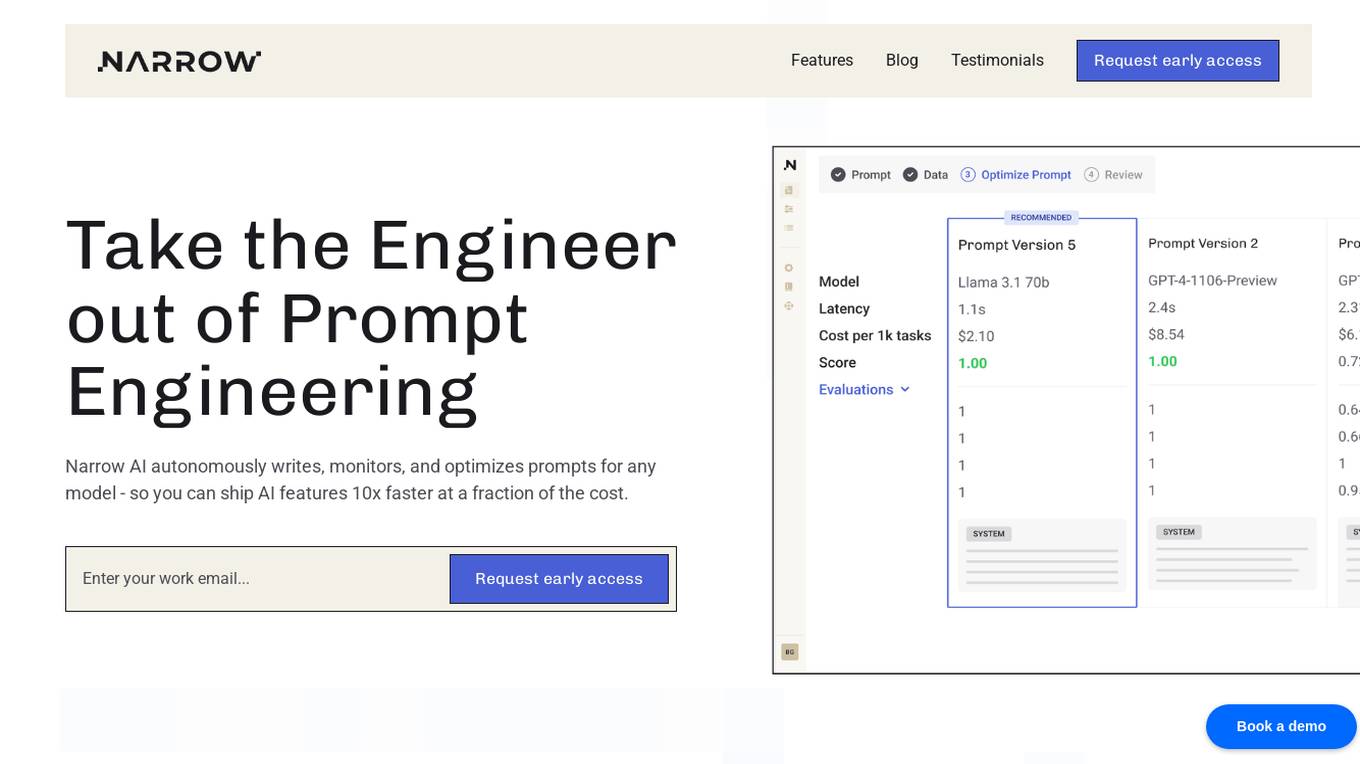
Narrow AI
Narrow AI is an AI application that autonomously writes, monitors, and optimizes prompts for any model, enabling users to ship AI features 10x faster at a fraction of the cost. It streamlines the workflow by allowing users to test new models in minutes, compare prompt performance, and deploy on the optimal model for their use case. Narrow AI helps users maximize efficiency by generating expert-level prompts, adapting prompts to new models, and optimizing prompts for quality, cost, and speed.
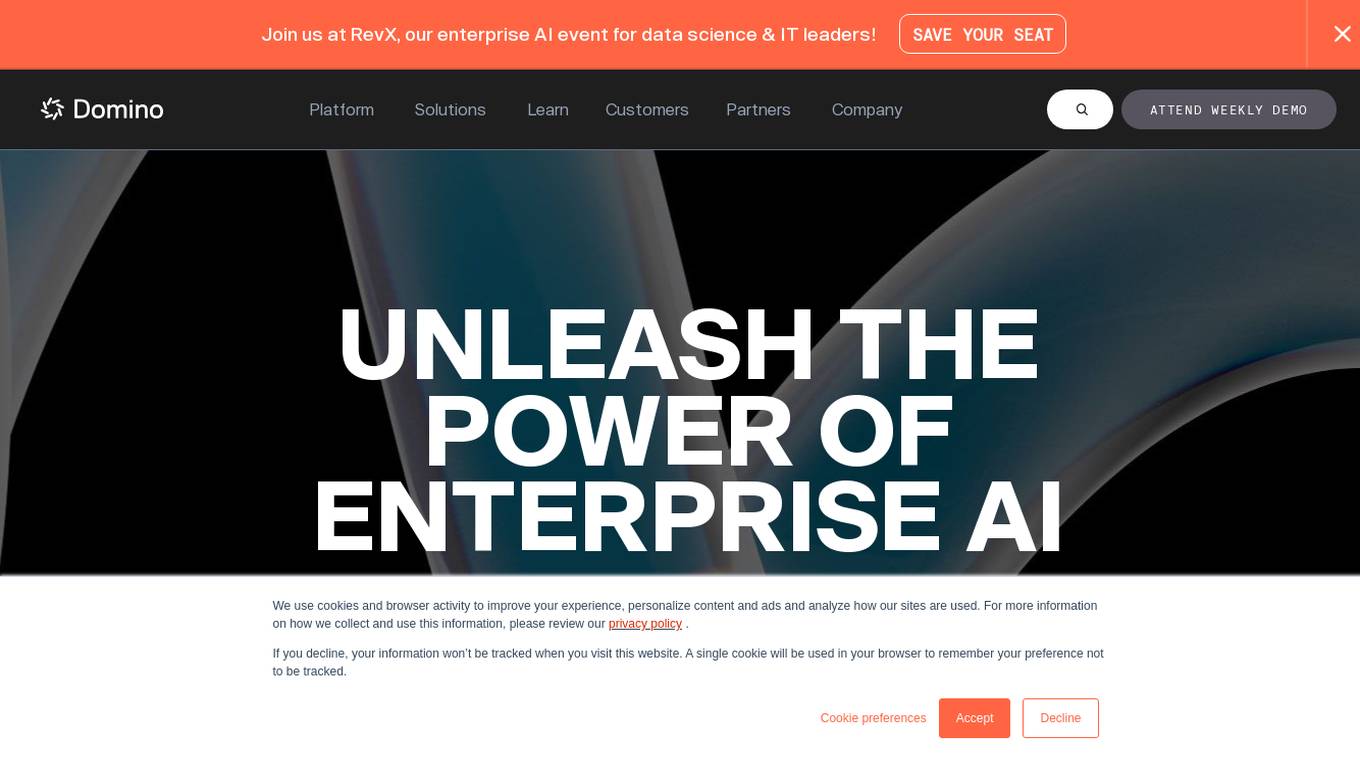
Domino Data Lab
Domino Data Lab is an enterprise AI platform that enables data scientists and IT leaders to build, deploy, and manage AI models at scale. It provides a unified platform for accessing data, tools, compute, models, and projects across any environment. Domino also fosters collaboration, establishes best practices, and tracks models in production to accelerate and scale AI while ensuring governance and reducing costs.
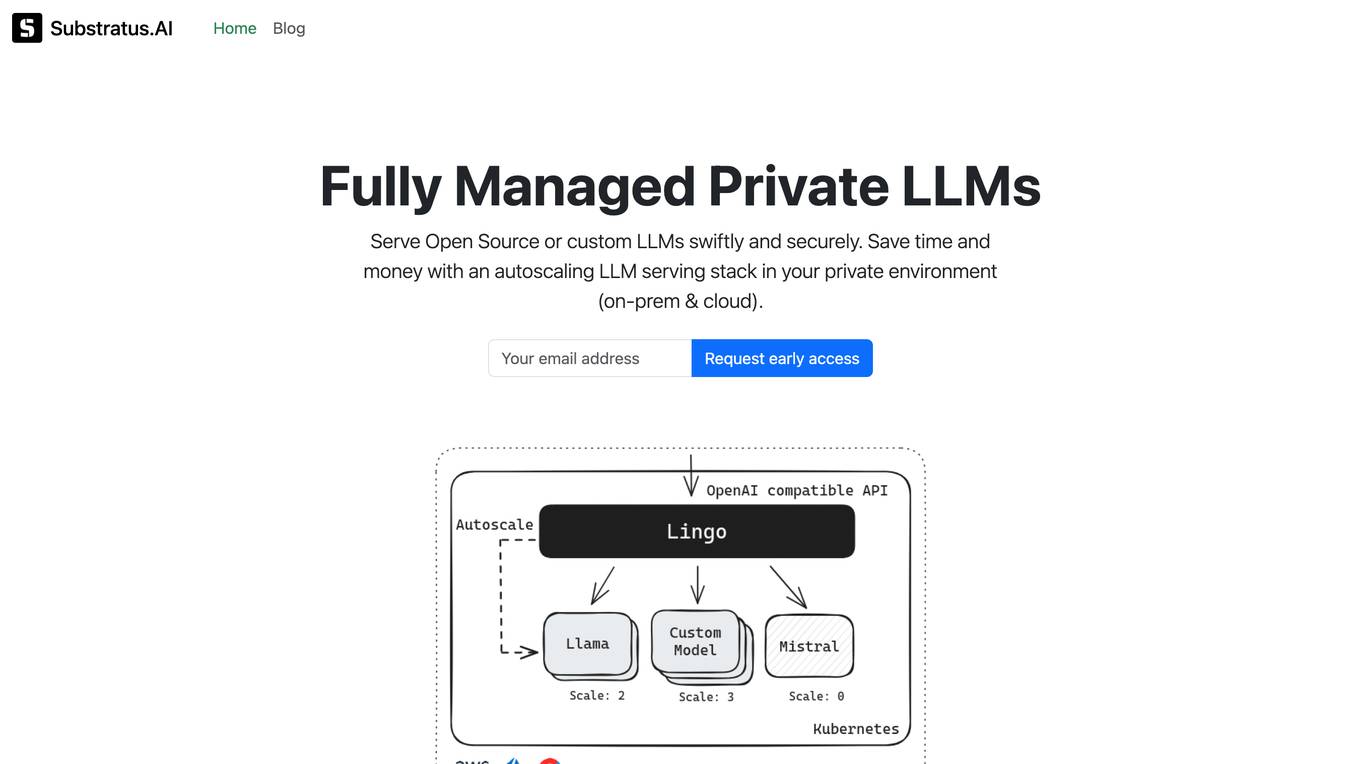
Substratus.AI
Substratus.AI is a fully managed private LLMs platform that allows users to serve LLMs (Llama and Mistral) in their own cloud account. It enables users to keep control of their data while reducing OpenAI costs by up to 10x. With Substratus.AI, users can utilize LLMs in production in hours instead of weeks, making it a convenient and efficient solution for AI model deployment.
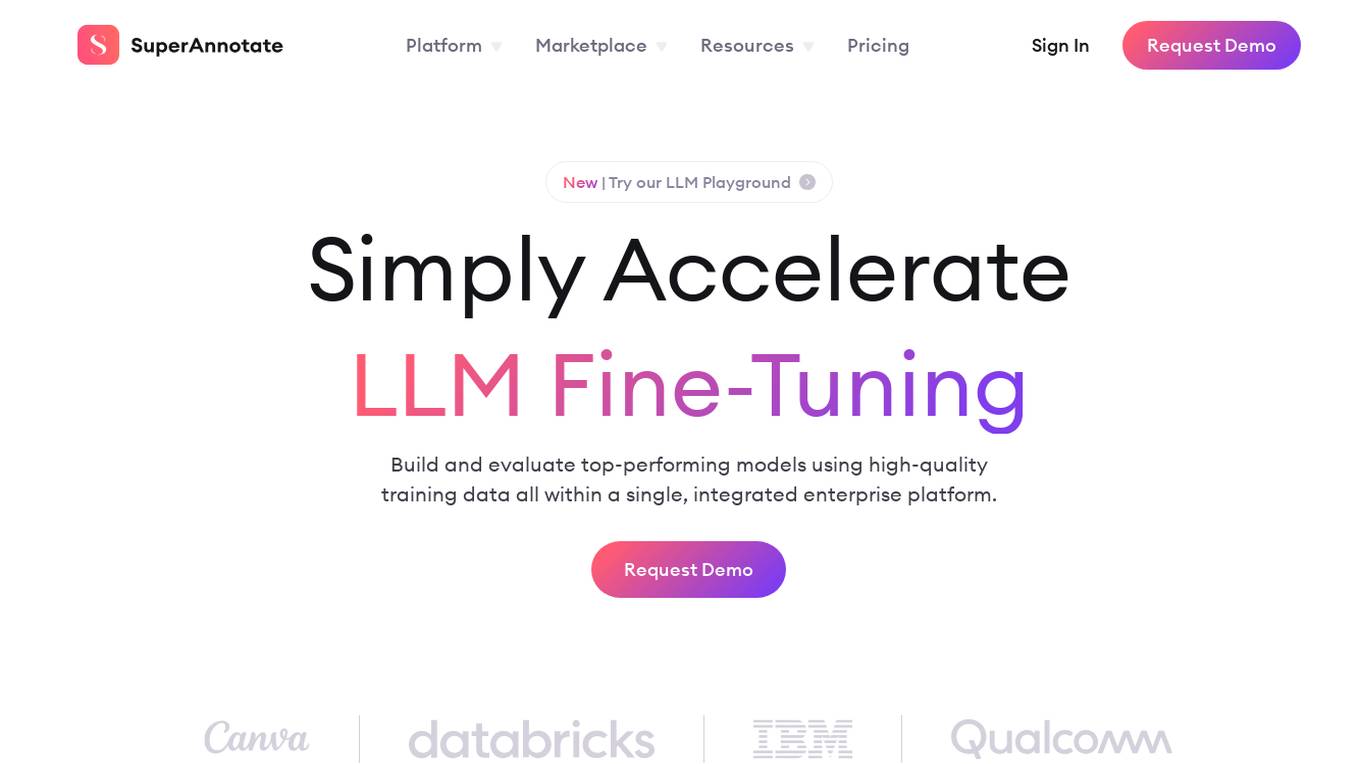
SuperAnnotate
SuperAnnotate is an AI data platform that simplifies and accelerates model-building by unifying the AI pipeline. It enables users to create, curate, and evaluate datasets efficiently, leading to the development of better models faster. The platform offers features like connecting any data source, building customizable UIs, creating high-quality datasets, evaluating models, and deploying models seamlessly. SuperAnnotate ensures global security and privacy measures for data protection.
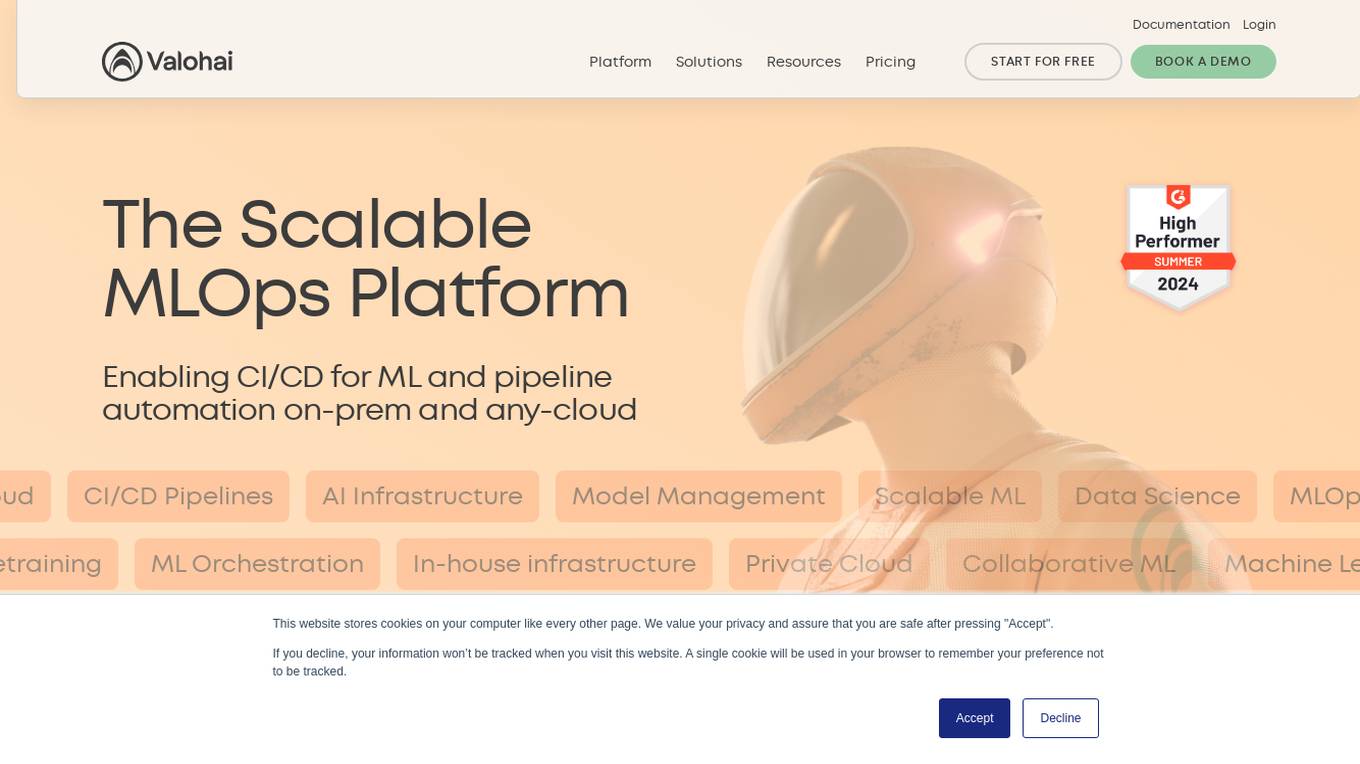
Valohai
Valohai is a scalable MLOps platform that enables Continuous Integration/Continuous Deployment (CI/CD) for machine learning and pipeline automation on-premises and across various cloud environments. It helps streamline complex machine learning workflows by offering framework-agnostic ML capabilities, automatic versioning with complete lineage of ML experiments, hybrid and multi-cloud support, scalability and performance optimization, streamlined collaboration among data scientists, IT, and business units, and smart orchestration of ML workloads on any infrastructure. Valohai also provides a knowledge repository for storing and sharing the entire model lifecycle, facilitating cross-functional collaboration, and allowing developers to build with total freedom using any libraries or frameworks.
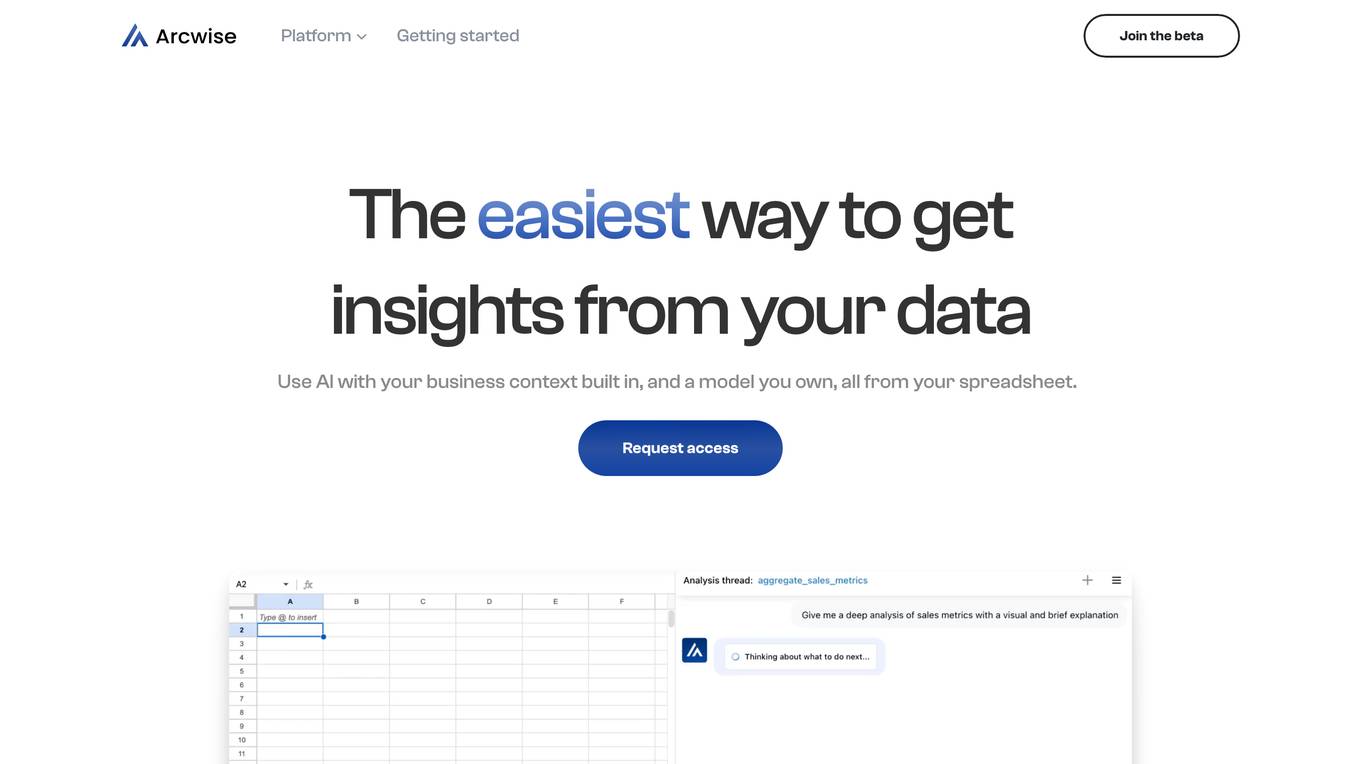
Arcwise
Arcwise is a cloud-based data science platform that provides a comprehensive set of tools for data preparation, exploration, modeling, and deployment. It is designed to make data science accessible to users of all skill levels, from beginners to experts. Arcwise offers a user-friendly interface, drag-and-drop functionality, and a wide range of pre-built templates and algorithms. This makes it easy for users to get started with data science and quickly build and deploy machine learning models.
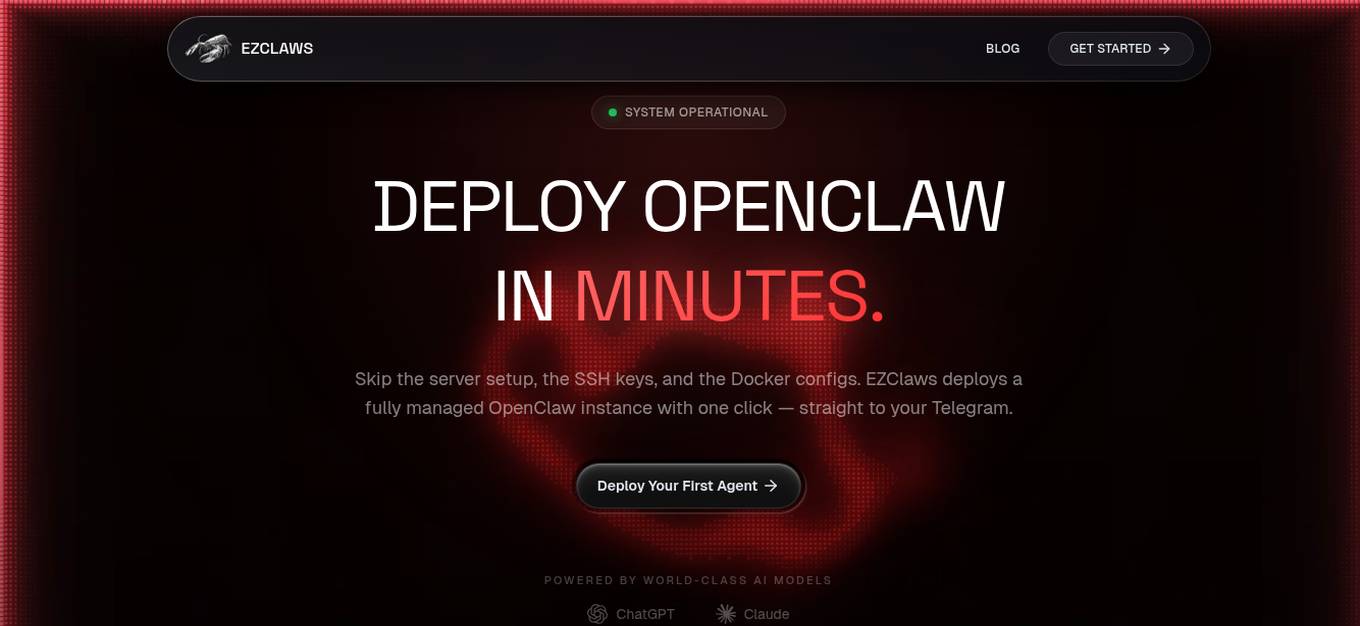
EZClaws
EZClaws is an AI tool designed for one-click OpenClaw hosting, allowing users to deploy and manage OpenClaw instances with ease. It offers a fully managed platform for hosting AI agents, powered by world-class AI models like GPT-4 and Claude. EZClaws simplifies the deployment process by handling server setup, SSH keys, Docker configs, and more, all through a user-friendly interface. With features such as automated provisioning, isolated and encrypted environments, built-in usage tracking, and quick deployment times, EZClaws streamlines the hosting experience for AI enthusiasts and developers.
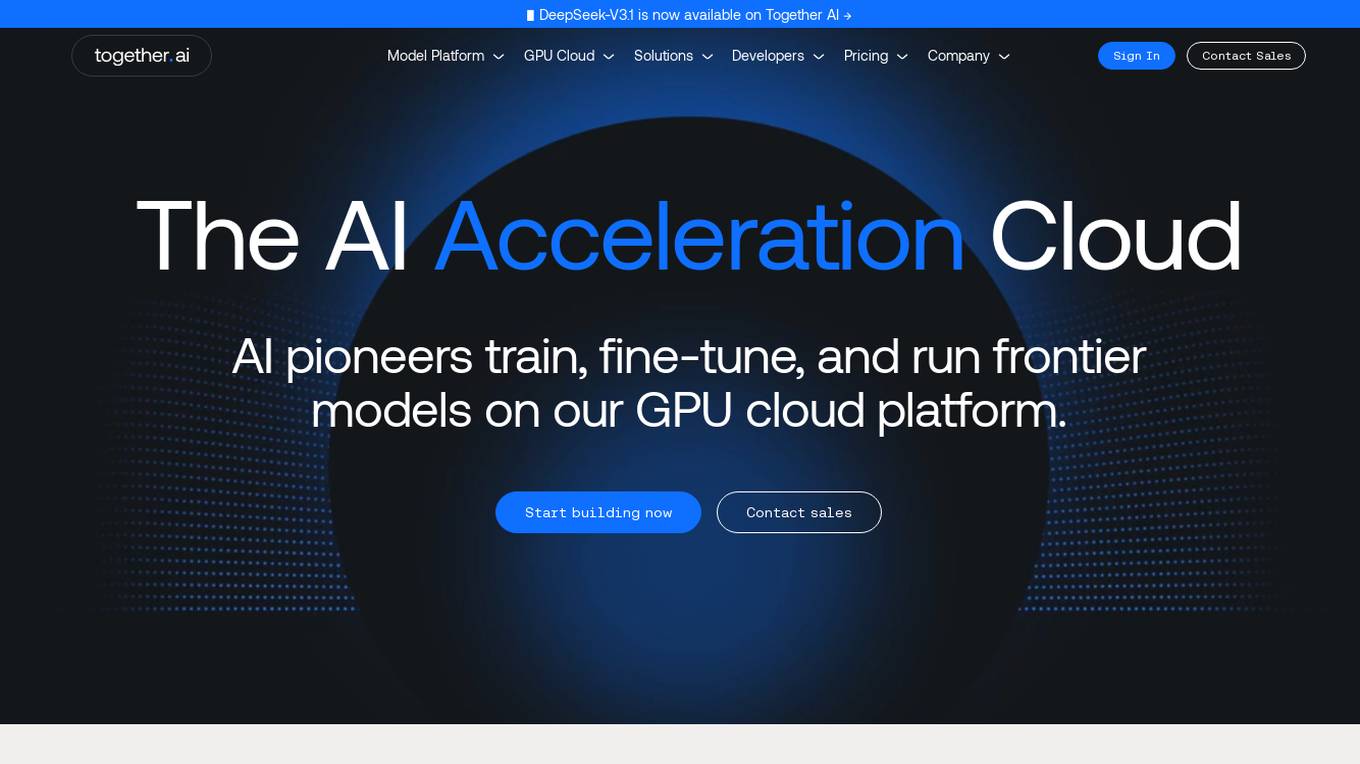
Together AI
Together AI is an AI Acceleration Cloud platform that offers fast inference, fine-tuning, and training services. It provides self-service NVIDIA GPUs, model deployment on custom hardware, AI chat app, code execution sandbox, and tools to find the right model for specific use cases. The platform also includes a model library with open-source models, documentation for developers, and resources for advancing open-source AI. Together AI enables users to leverage pre-trained models, fine-tune them, or build custom models from scratch, catering to various generative AI needs.
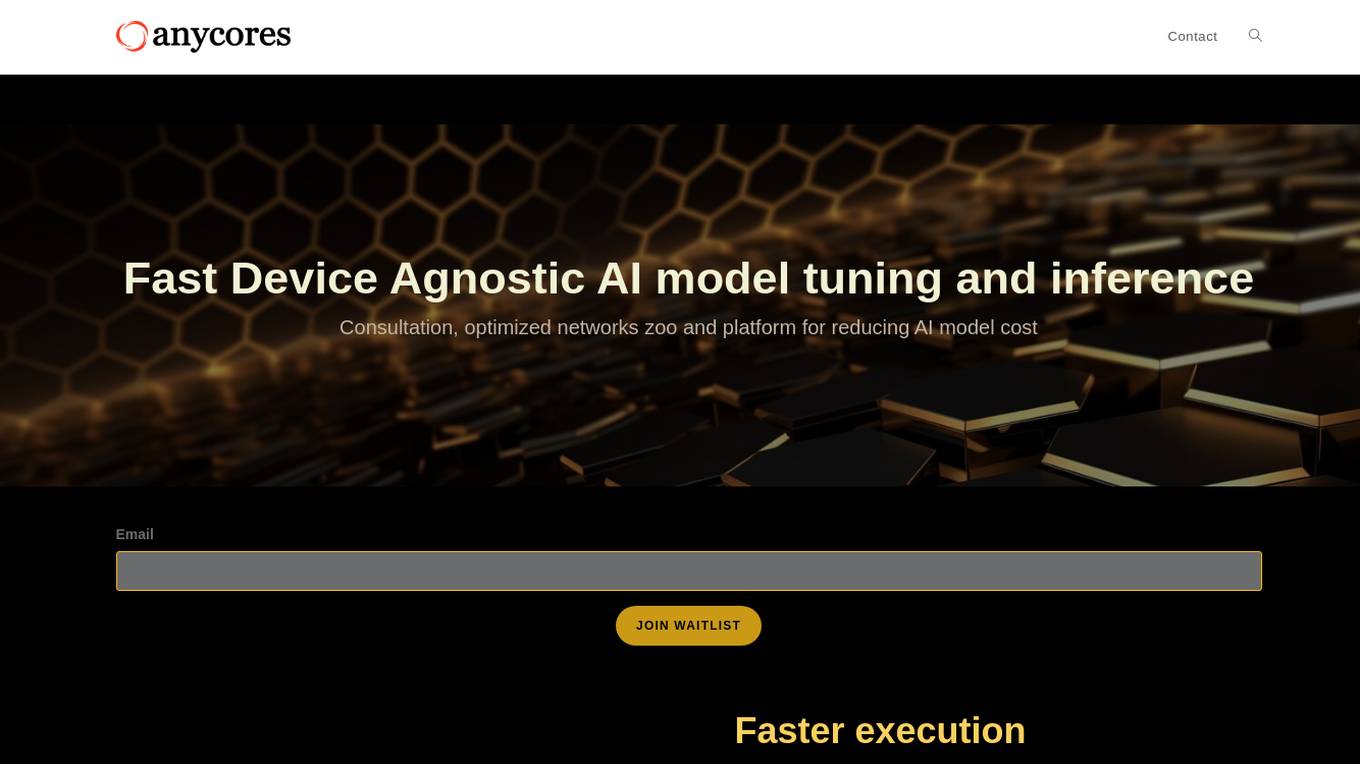
Anycores
Anycores is an AI tool designed to optimize the performance of deep neural networks and reduce the cost of running AI models in the cloud. It offers a platform that provides automated solutions for tuning and inference consultation, optimized networks zoo, and platform for reducing AI model cost. Anycores focuses on faster execution, reducing inference time over 10x times, and footprint reduction during model deployment. It is device agnostic, supporting Nvidia, AMD GPUs, Intel, ARM, AMD CPUs, servers, and edge devices. The tool aims to provide highly optimized, low footprint networks tailored to specific deployment scenarios.
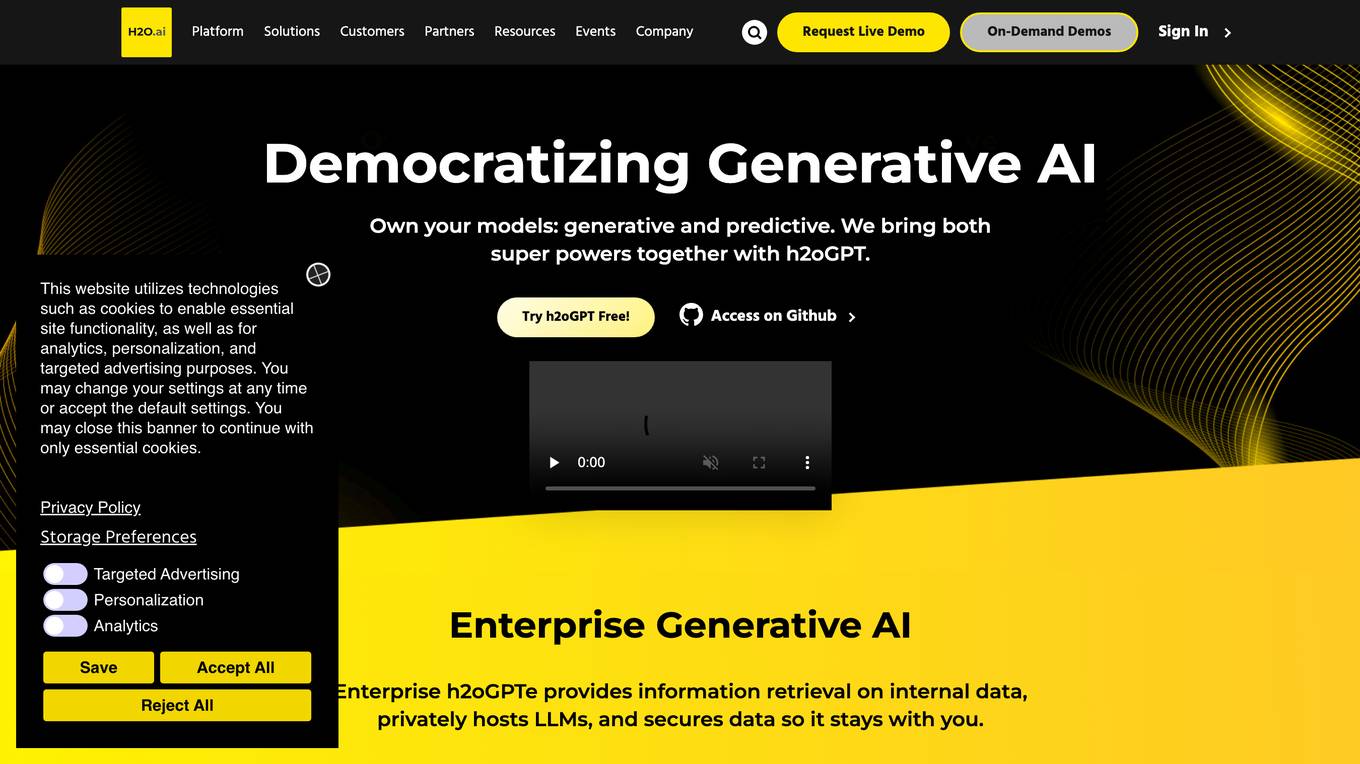
H2O.ai
H2O.ai is a leading AI platform that offers a convergence of predictive and generative AI solutions for private and protected data. The platform provides a wide range of AI agents, digital assistants, and business insights tools for various industries and use cases. With a focus on model building, data science, and enterprise development, H2O.ai empowers users to accelerate model development, automate workflows, and deploy AI applications securely on-premises or in the cloud.
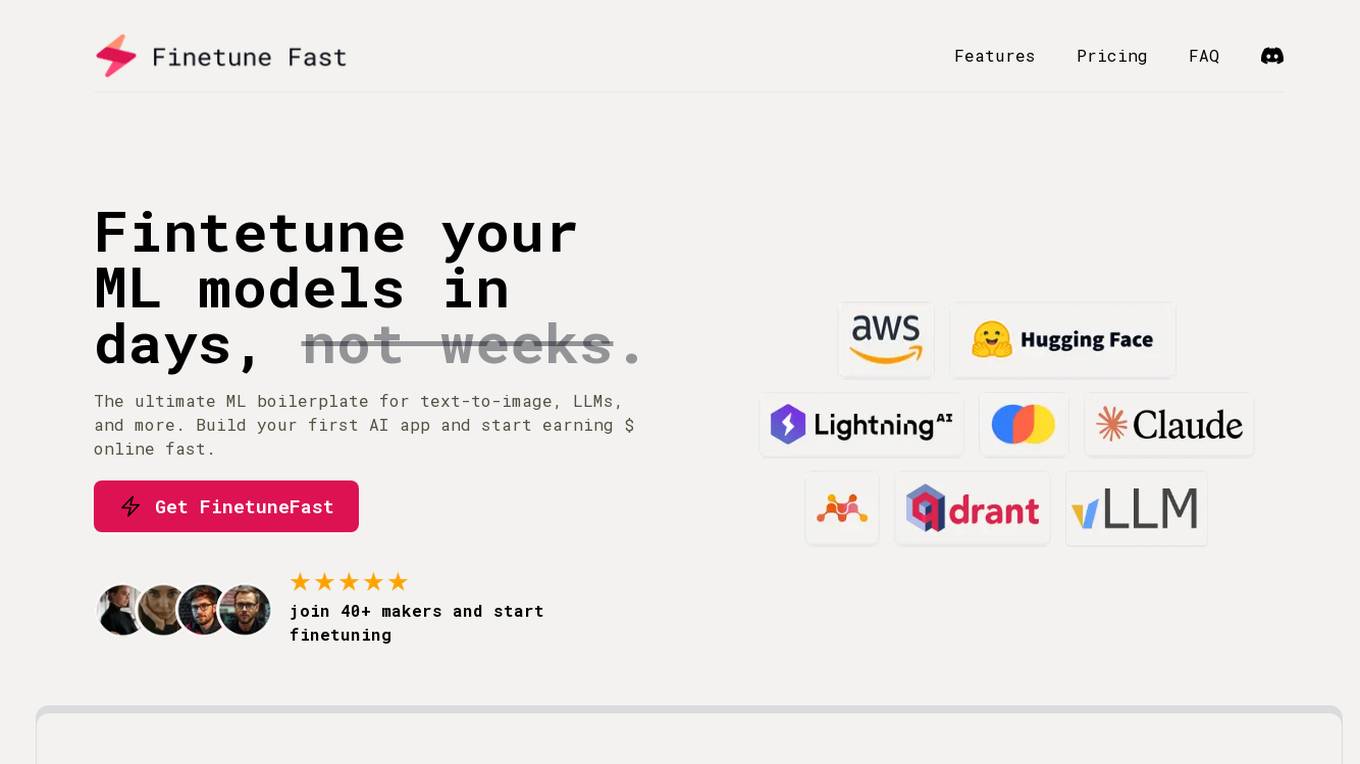
FinetuneFast
FinetuneFast is an AI tool designed to help developers, indie makers, and businesses to efficiently finetune machine learning models, process data, and deploy AI solutions at lightning speed. With pre-configured training scripts, efficient data loading pipelines, and one-click model deployment, FinetuneFast streamlines the process of building and deploying AI models, saving users valuable time and effort. The tool is user-friendly, accessible for ML beginners, and offers lifetime updates for continuous improvement.
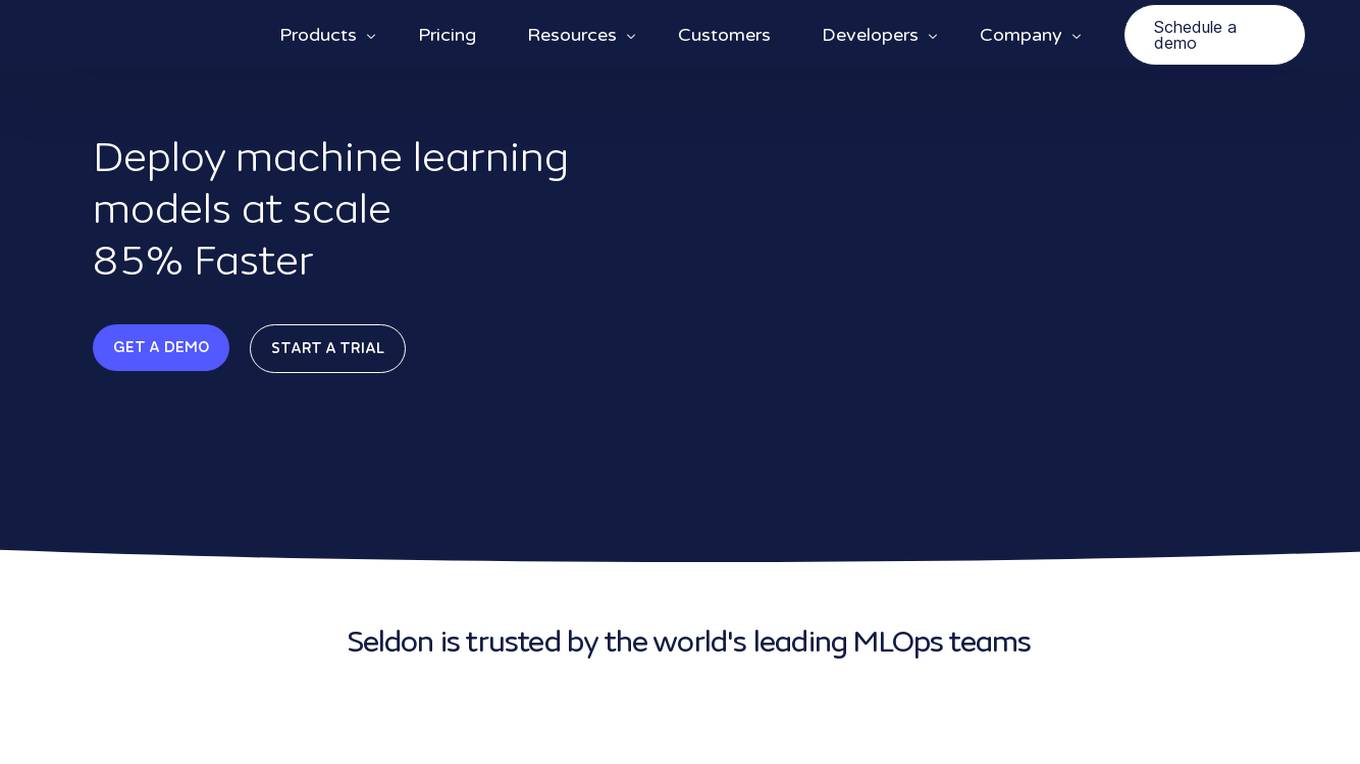
Seldon
Seldon is an MLOps platform that helps enterprises deploy, monitor, and manage machine learning models at scale. It provides a range of features to help organizations accelerate model deployment, optimize infrastructure resource allocation, and manage models and risk. Seldon is trusted by the world's leading MLOps teams and has been used to install and manage over 10 million ML models. With Seldon, organizations can reduce deployment time from months to minutes, increase efficiency, and reduce infrastructure and cloud costs.

Backend.AI
Backend.AI is an enterprise-scale cluster backend for AI frameworks that offers scalability, GPU virtualization, HPC optimization, and DGX-Ready software products. It provides a fast and efficient way to build, train, and serve AI models of any type and size, with flexible infrastructure options. Backend.AI aims to optimize backend resources, reduce costs, and simplify deployment for AI developers and researchers. The platform integrates seamlessly with existing tools and offers fractional GPU usage and pay-as-you-play model to maximize resource utilization.
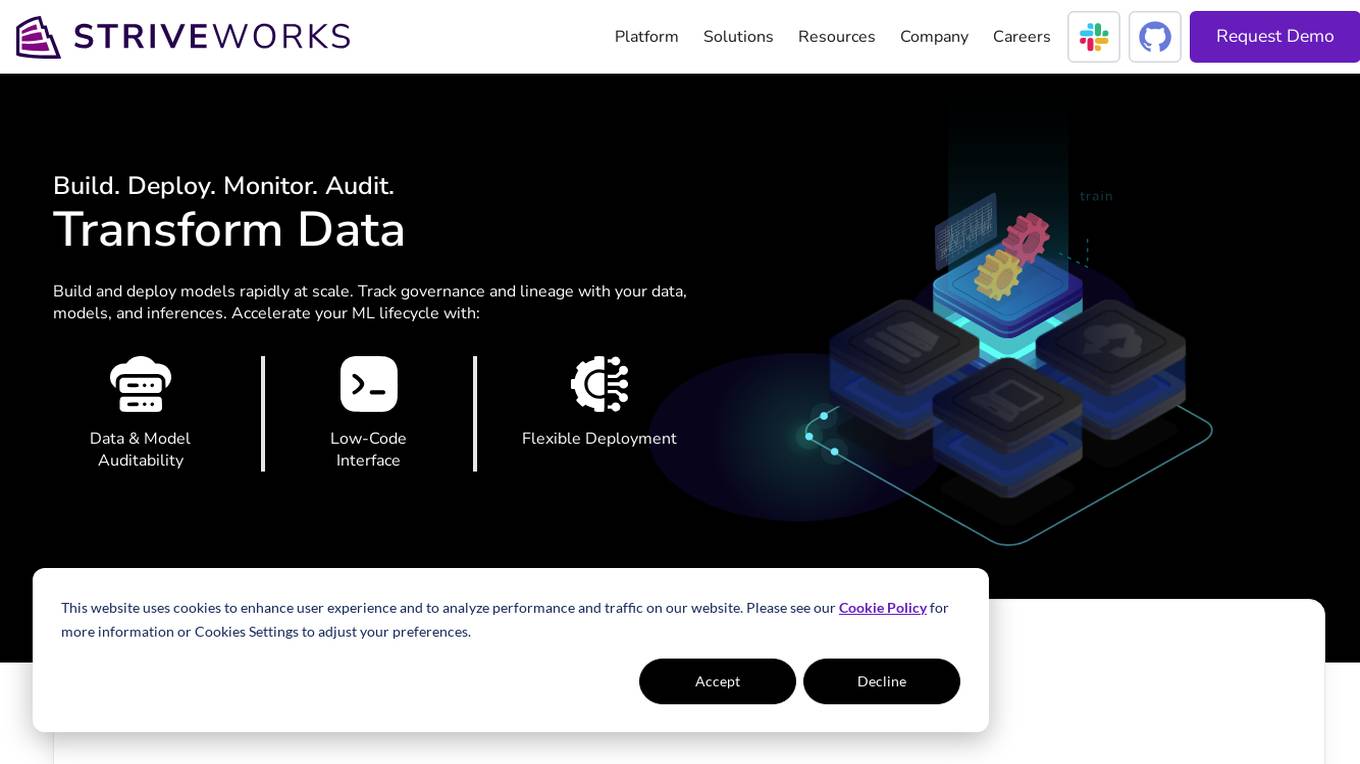
Striveworks
Striveworks is an AI application that offers a Machine Learning Operations Platform designed to help organizations build, deploy, maintain, monitor, and audit machine learning models efficiently. It provides features such as rapid model deployment, data and model auditability, low-code interface, flexible deployment options, and operationalizing AI data science with real returns. Striveworks aims to accelerate the ML lifecycle, save time and money in model creation, and enable non-experts to leverage AI for data-driven decisions.
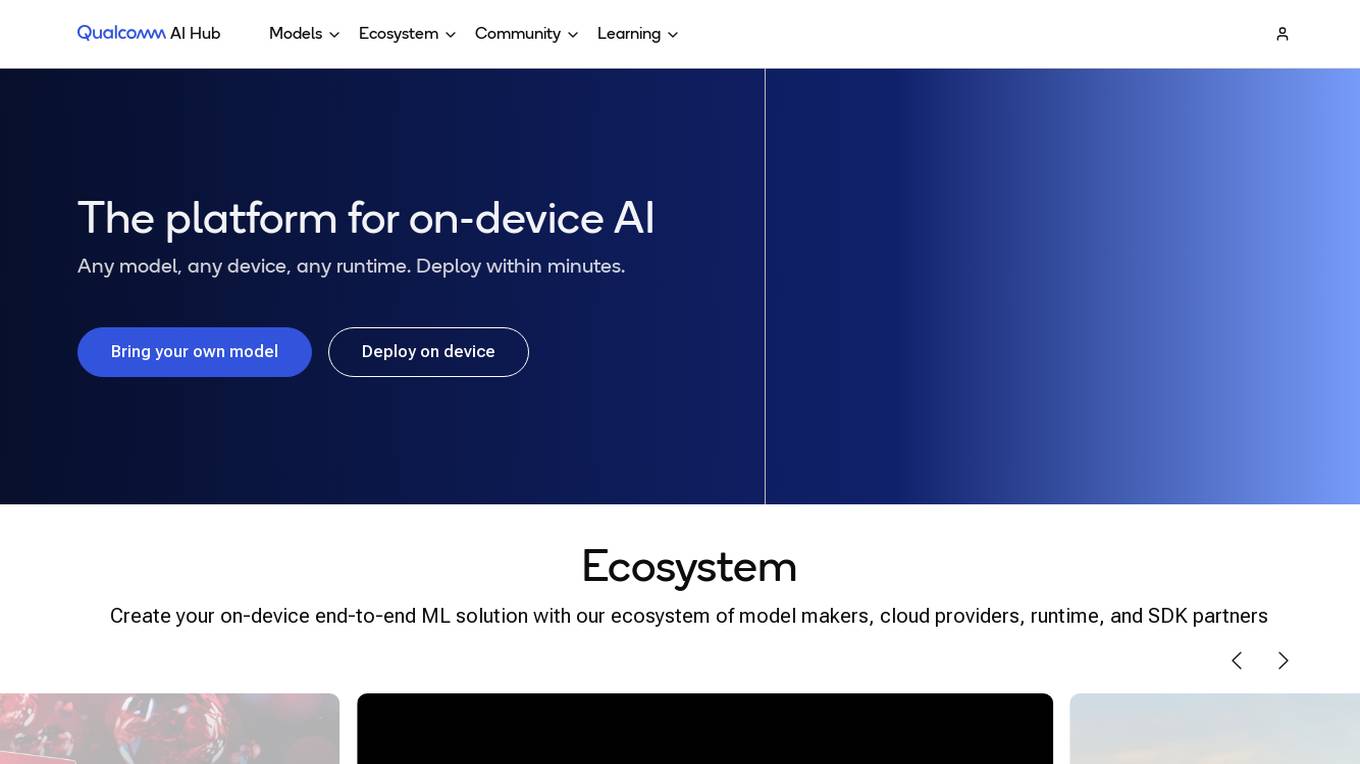
Qualcomm AI Hub
Qualcomm AI Hub is a platform that allows users to run AI models on Snapdragon® 8 Elite devices. It provides a collaborative ecosystem for model makers, cloud providers, runtime, and SDK partners to deploy on-device AI solutions quickly and efficiently. Users can bring their own models, optimize for deployment, and access a variety of AI services and resources. The platform caters to various industries such as mobile, automotive, and IoT, offering a range of models and services for edge computing.

HappyML
HappyML is an AI tool designed to assist users in machine learning tasks. It provides a user-friendly interface for running machine learning algorithms without the need for complex coding. With HappyML, users can easily build, train, and deploy machine learning models for various applications. The tool offers a range of features such as data preprocessing, model evaluation, hyperparameter tuning, and model deployment. HappyML simplifies the machine learning process, making it accessible to users with varying levels of expertise.
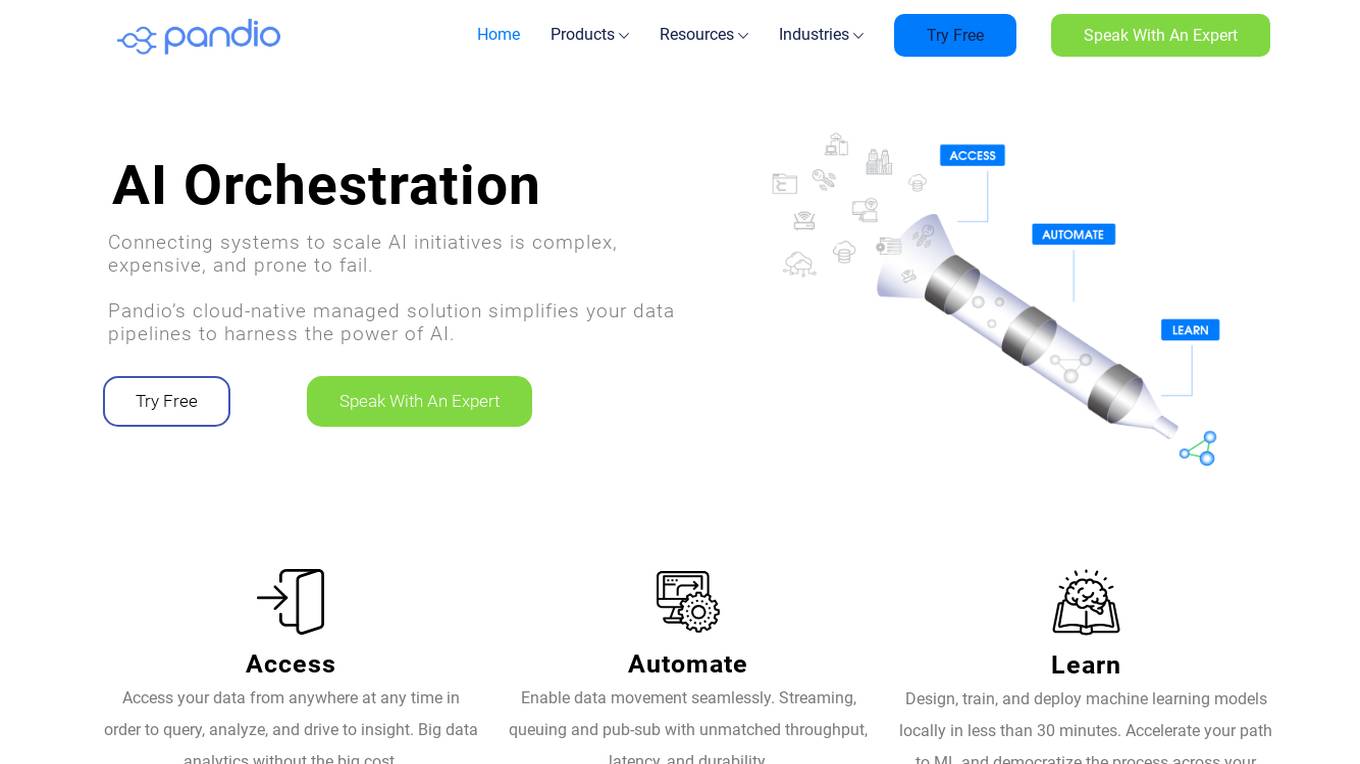
Pandio
Pandio is an AI orchestration platform that simplifies data pipelines to harness the power of AI. It offers cloud-native managed solutions to connect systems, automate data movement, and accelerate machine learning model deployment. Pandio's AI-driven architecture orchestrates models, data, and ML tools to drive AI automation and data-driven decisions faster. The platform is designed for price-performance, offering data movement at high speed and low cost, with near-infinite scalability and compatibility with any data, tools, or cloud environment.
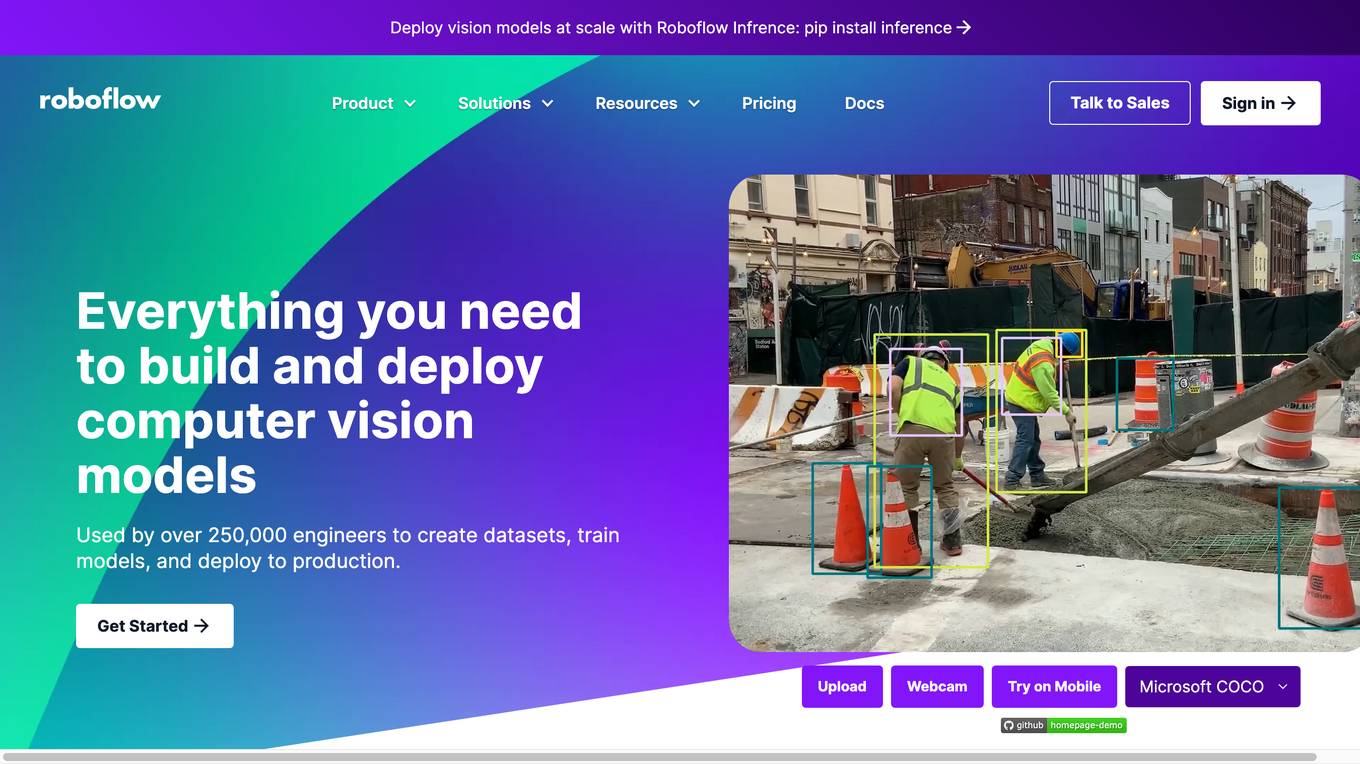
Roboflow
Roboflow is a platform that provides tools for building and deploying computer vision models. It offers a range of features, including data annotation, model training, and deployment. Roboflow is used by over 250,000 engineers to create datasets, train models, and deploy to production.
1 - Open Source Tools

supervisely
Supervisely is a computer vision platform that provides a range of tools and services for developing and deploying computer vision solutions. It includes a data labeling platform, a model training platform, and a marketplace for computer vision apps. Supervisely is used by a variety of organizations, including Fortune 500 companies, research institutions, and government agencies.
20 - OpenAI Gpts
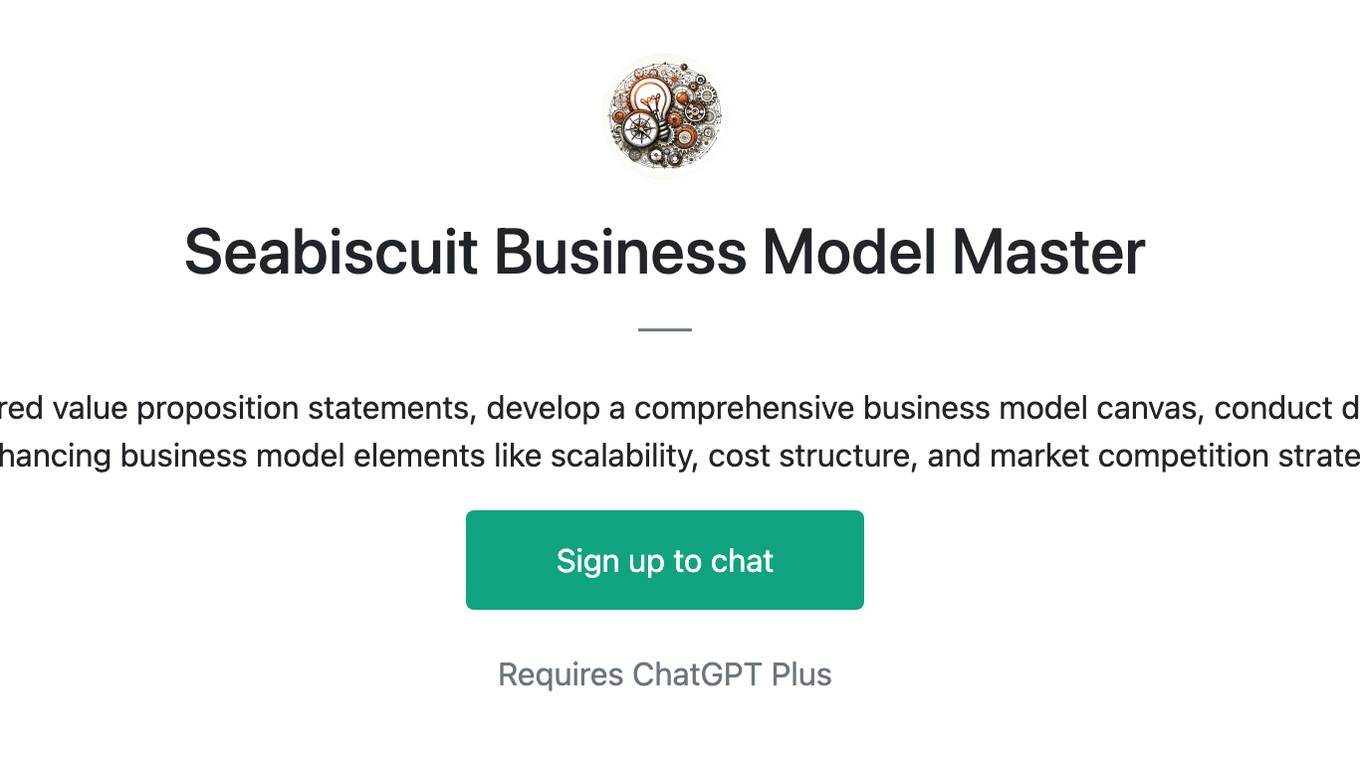
Seabiscuit Business Model Master
Discover A More Robust Business: Craft tailored value proposition statements, develop a comprehensive business model canvas, conduct detailed PESTLE analysis, and gain strategic insights on enhancing business model elements like scalability, cost structure, and market competition strategies. (v1.18)

Create A Business Model Canvas For Your Business
Let's get started by telling me about your business: What do you offer? Who do you serve? ------------------------------------------------------- Need help Prompt Engineering? Reach out on LinkedIn: StephenHnilica

Business Model Canvas Strategist
Business Model Canvas Creator - Build and evaluate your business model
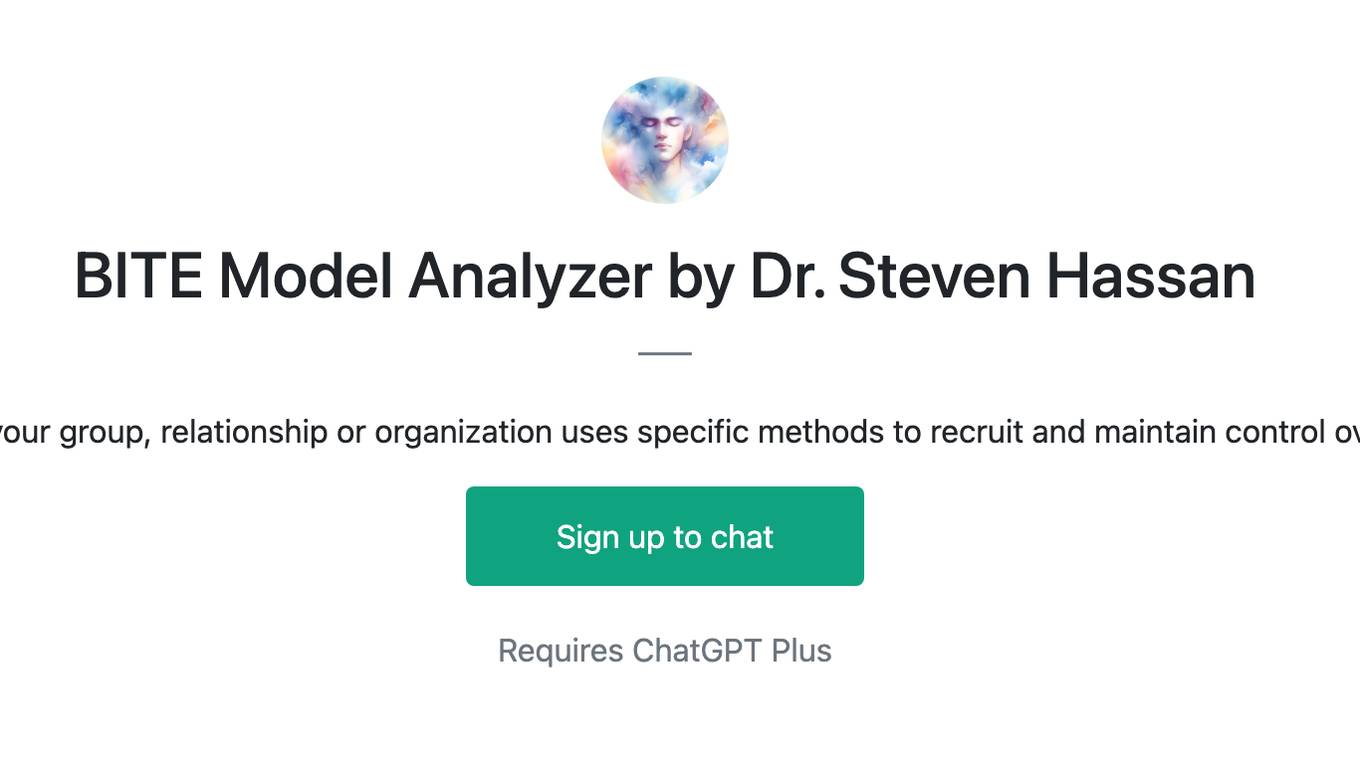
BITE Model Analyzer by Dr. Steven Hassan
Discover if your group, relationship or organization uses specific methods to recruit and maintain control over people
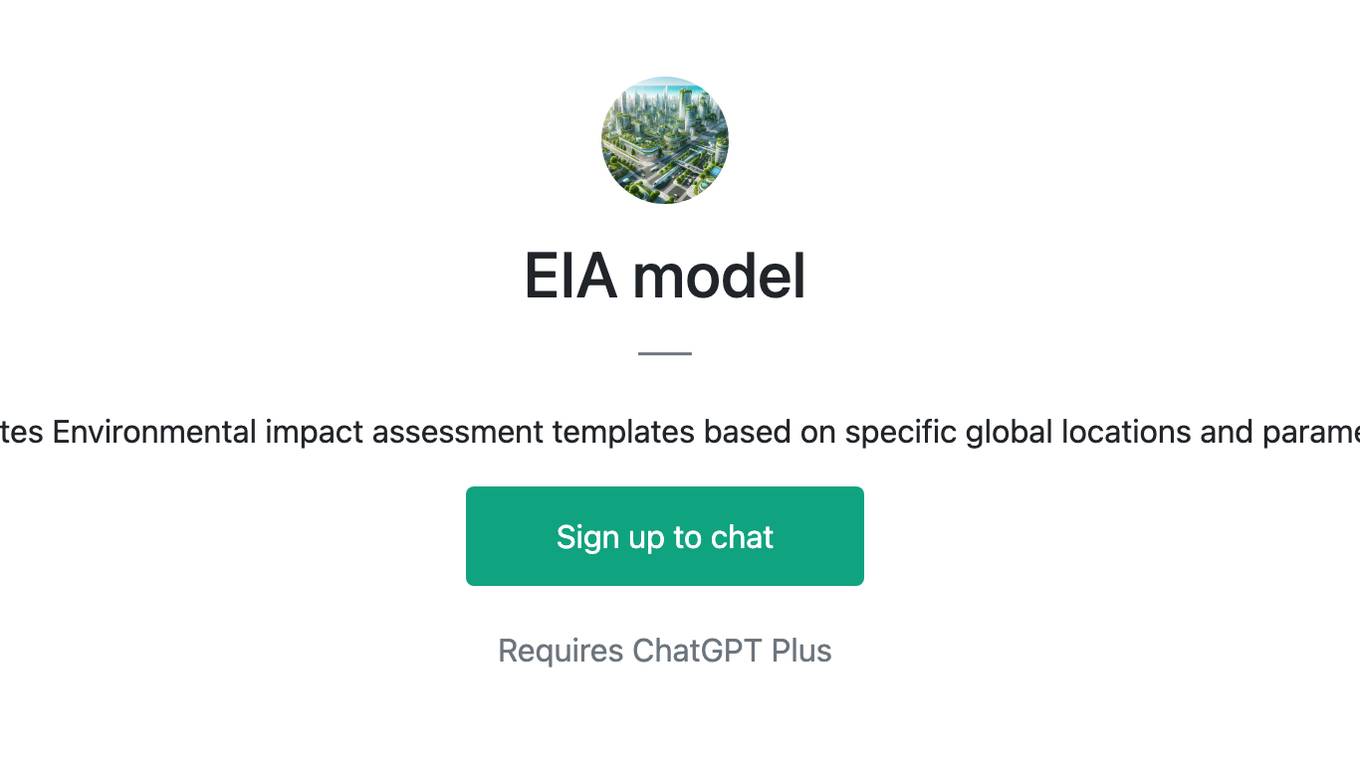
EIA model
Generates Environmental impact assessment templates based on specific global locations and parameters.

Business Model Canvas Wizard
Un aiuto a costruire il Business Model Canvas della tua iniziativa
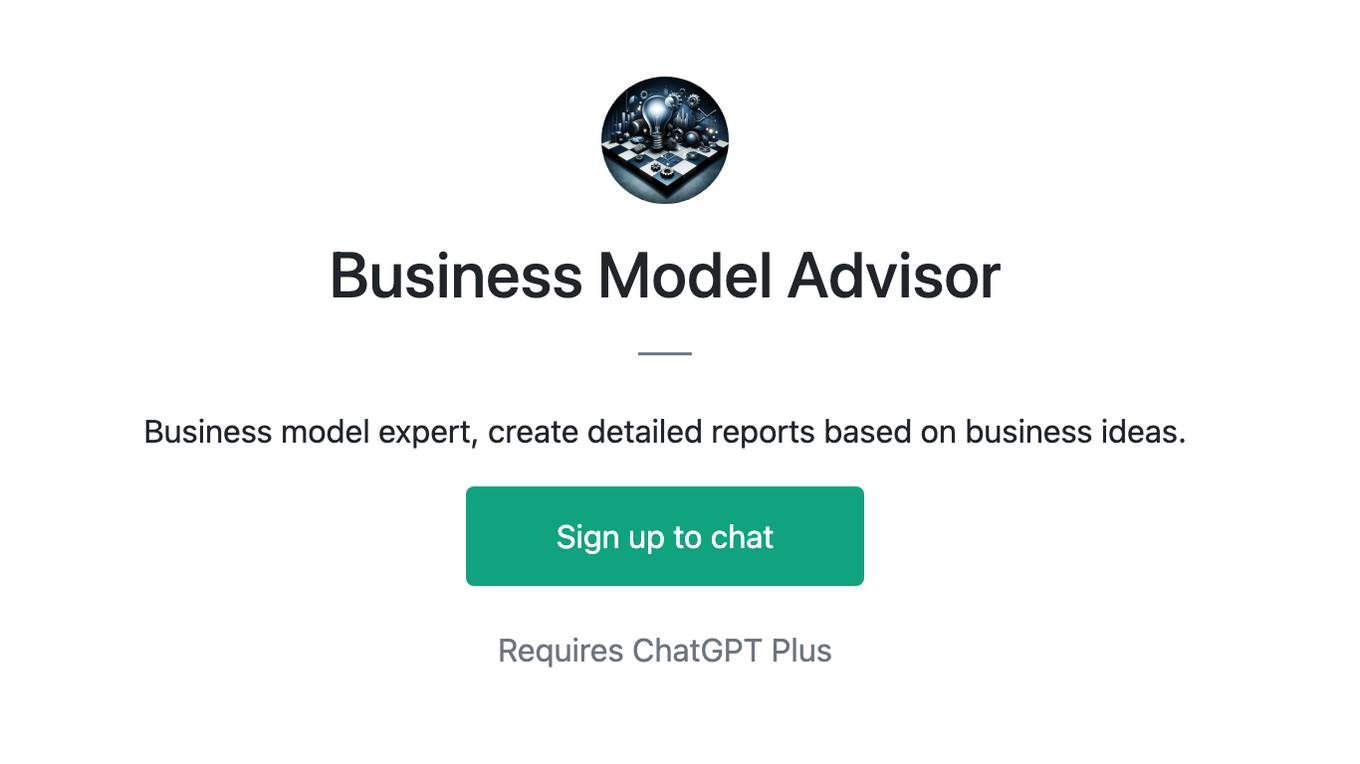
Business Model Advisor
Business model expert, create detailed reports based on business ideas.
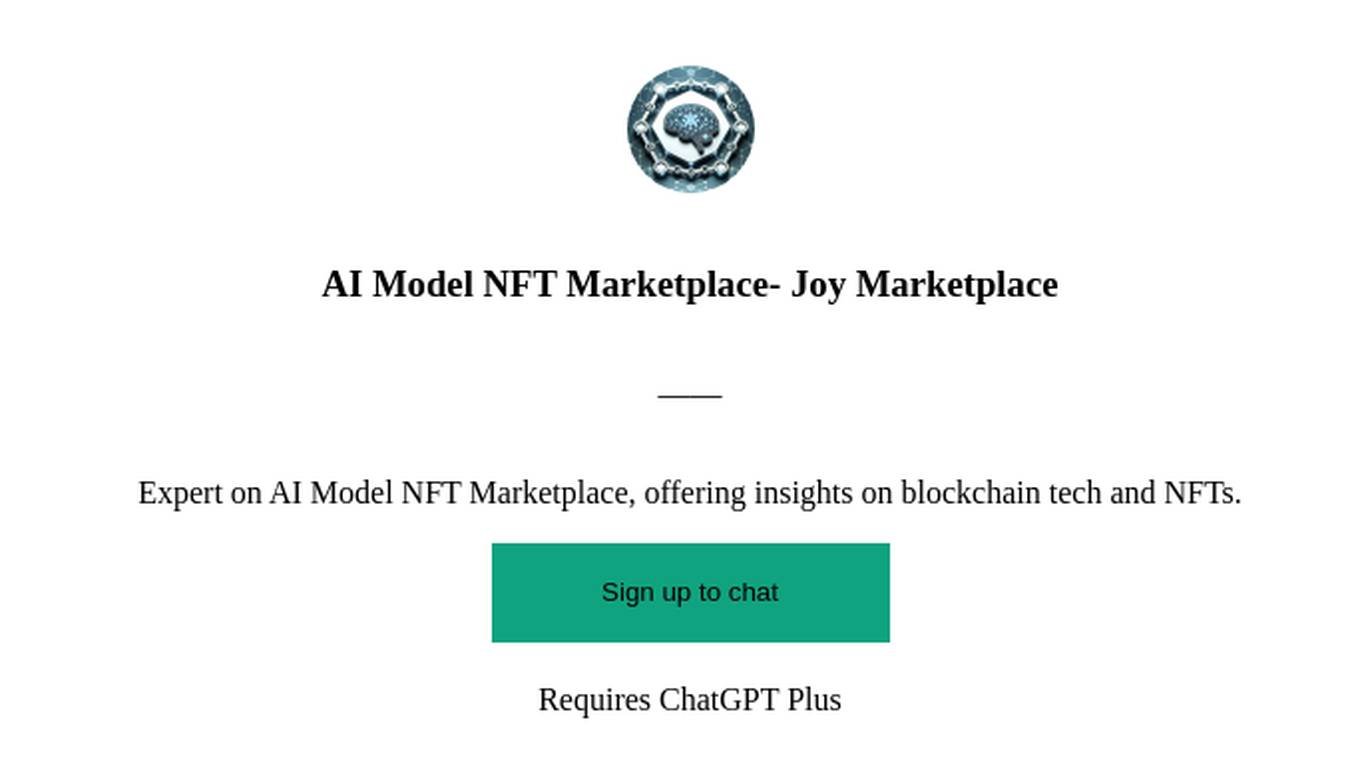
AI Model NFT Marketplace- Joy Marketplace
Expert on AI Model NFT Marketplace, offering insights on blockchain tech and NFTs.
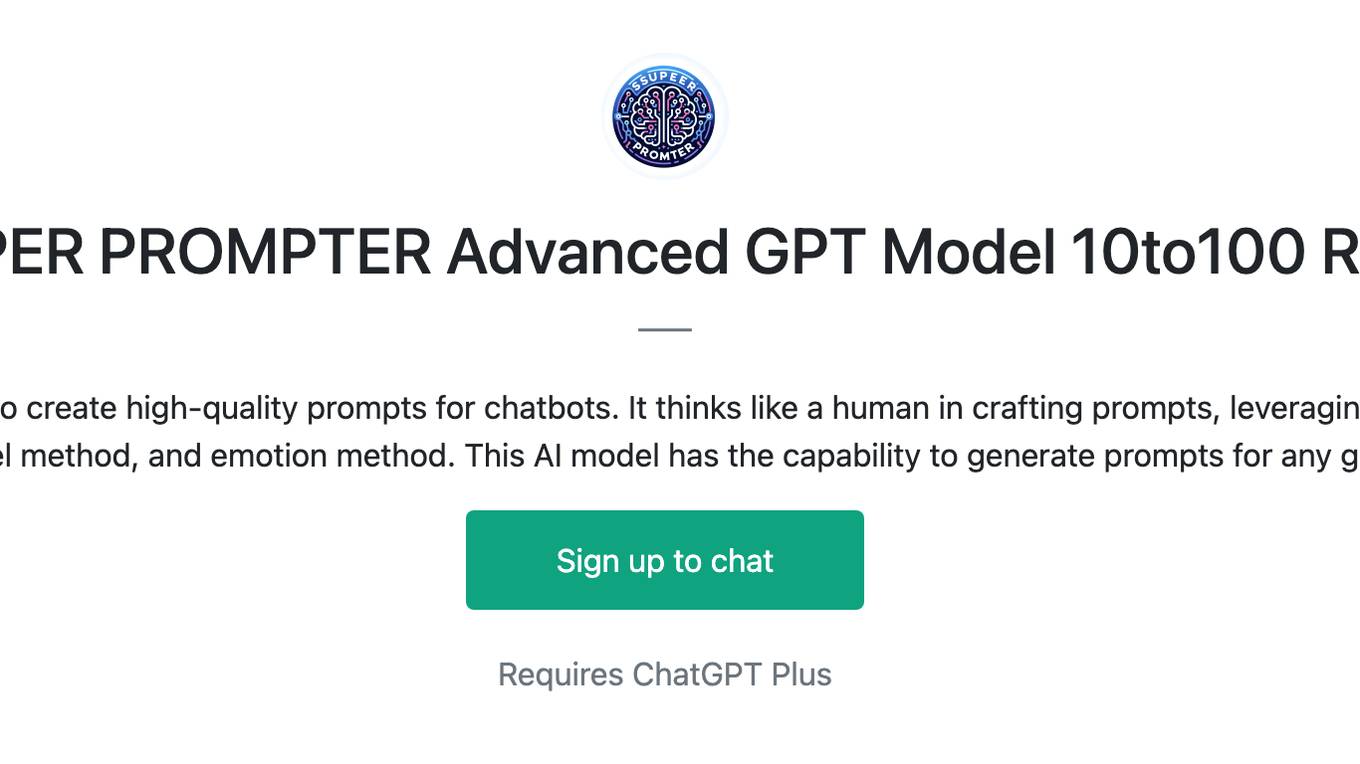
SUPER PROMPTER Advanced GPT Model 10to100 Role
Super Prompter is an AI model designed to create high-quality prompts for chatbots. It thinks like a human in crafting prompts, leveraging various methods like the role method, knowledge level method, and emotion method. This AI model has the capability to generate prompts for any given scenario
